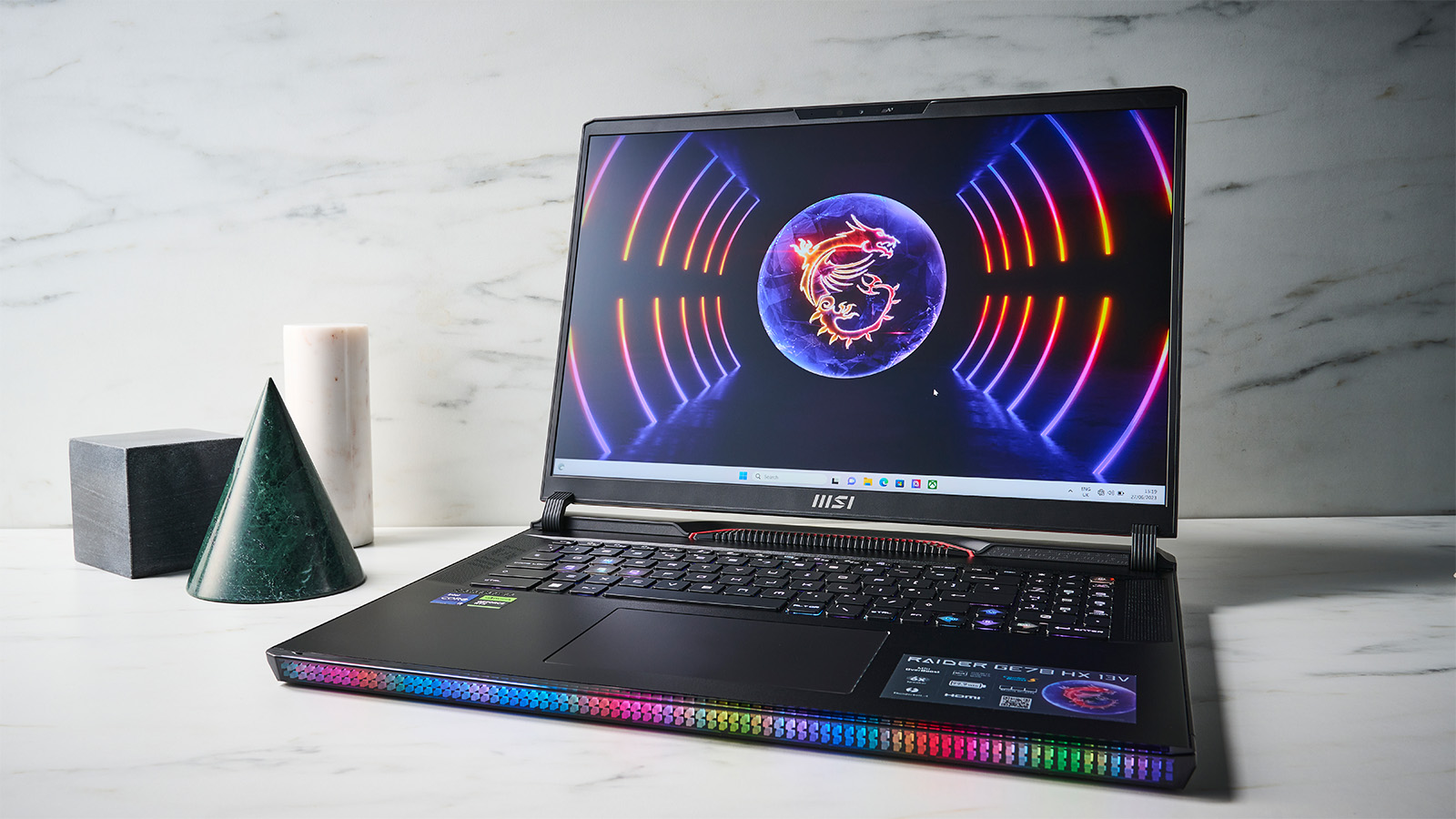

Andy Sansom
Gaming laptops are for those who want to absolute best-of-best performance when playing the most graphically intense games, but who also want to be able to take their machine on the go some of the time. They're a step above the best laptops that most people will use for work, or the best lightweight laptops that might be ideal for students.
The biggest AAA games of 2025 (and, frankly, even some titles from the not-so-distant past) often require a choice between performance and fidelity modes, even on the likes of the PS5 and Xbox Series X, but with some of the best gaming laptops you won't have to compromise. Exactly how far up the scale of graphical prowess (and, indeed, price) you wish to go will depend on various factors though.
Some gaming laptops will feature brash, flamboyant designs that scream 'gamer', while others may be a bit more discreet. Whatever your style or budget, we've got you covered with this guide to the machines worthy of your time that will get your favourite games running and looking better than ever.
T3's Top Picks
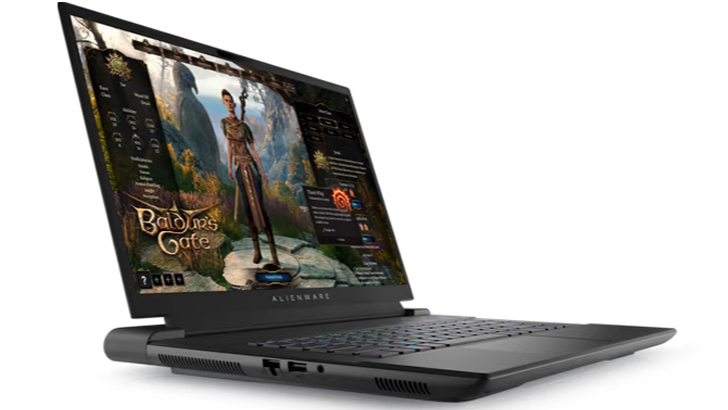
The best gaming laptop overall
A great compromise between price and performance, the Alienware M16 certainly isn't cheap – but compared to others it represents great value. It will still handle pretty much any game you care to throw at it... all while looking seriously smart too.
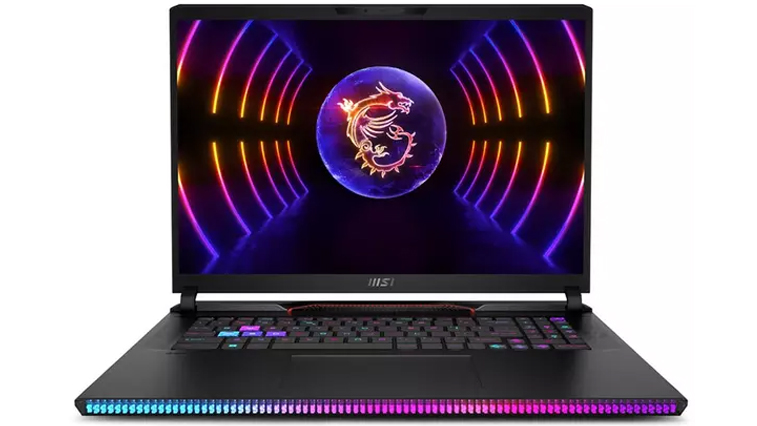
The best premium gaming laptop
It'll cost you a pretty penny, that's for sure, but if you can afford it this is the machine to plump for. A beautiful beast with a Star Trek-style RGB light bar on the front and an Nvidia RTX 4080 GPU that makes mincemeat of any game you could think of.

The best value gaming laptop
This used to be the ultimate gaming laptop and although it's a couple of years old now that has just made it even more affordable. A mighty machine in a compact package, with great battery life, the ROG Zephyrus G14 demands your attention.
The best gaming laptops we recommend in 2025
Best overall
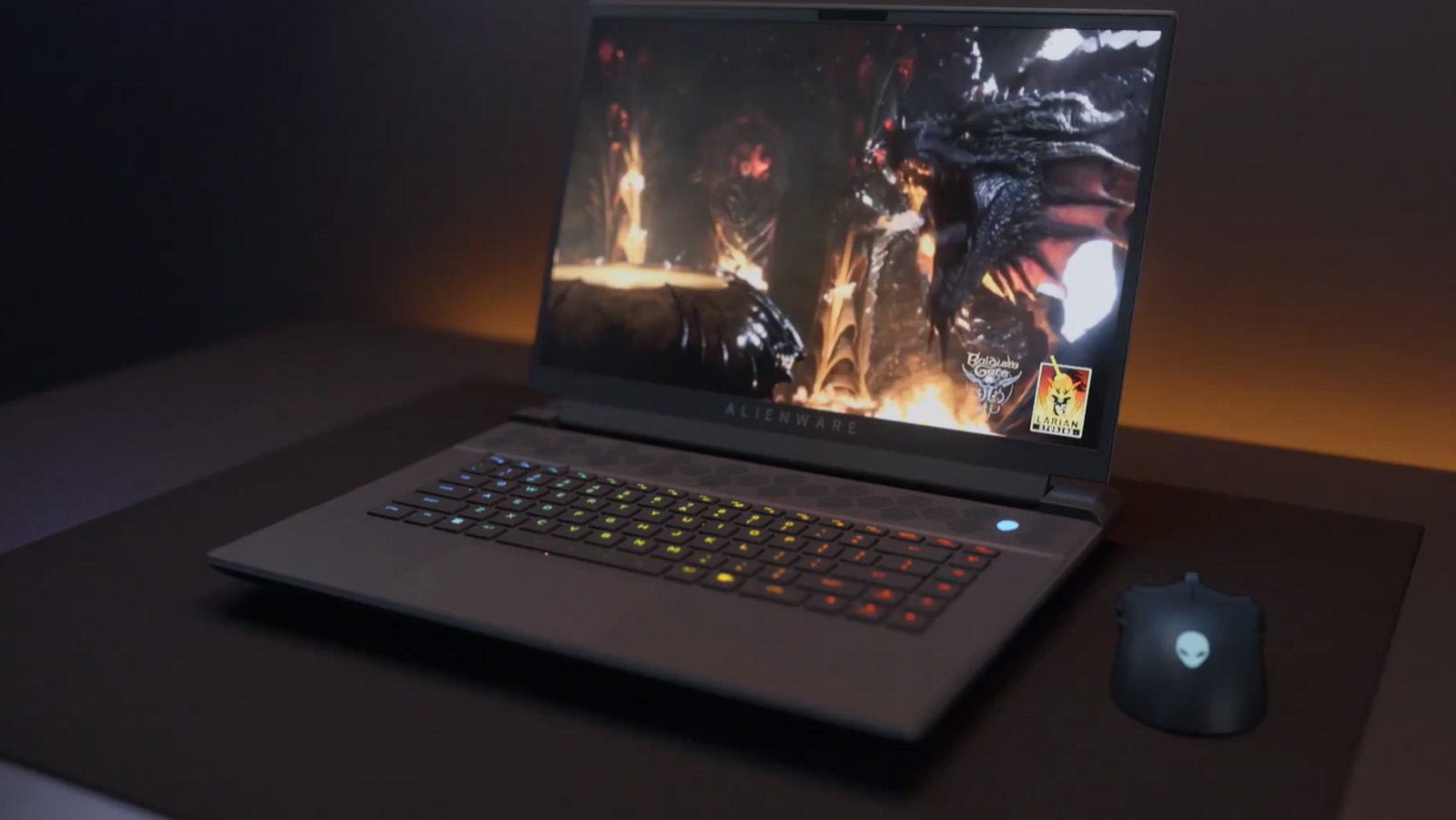
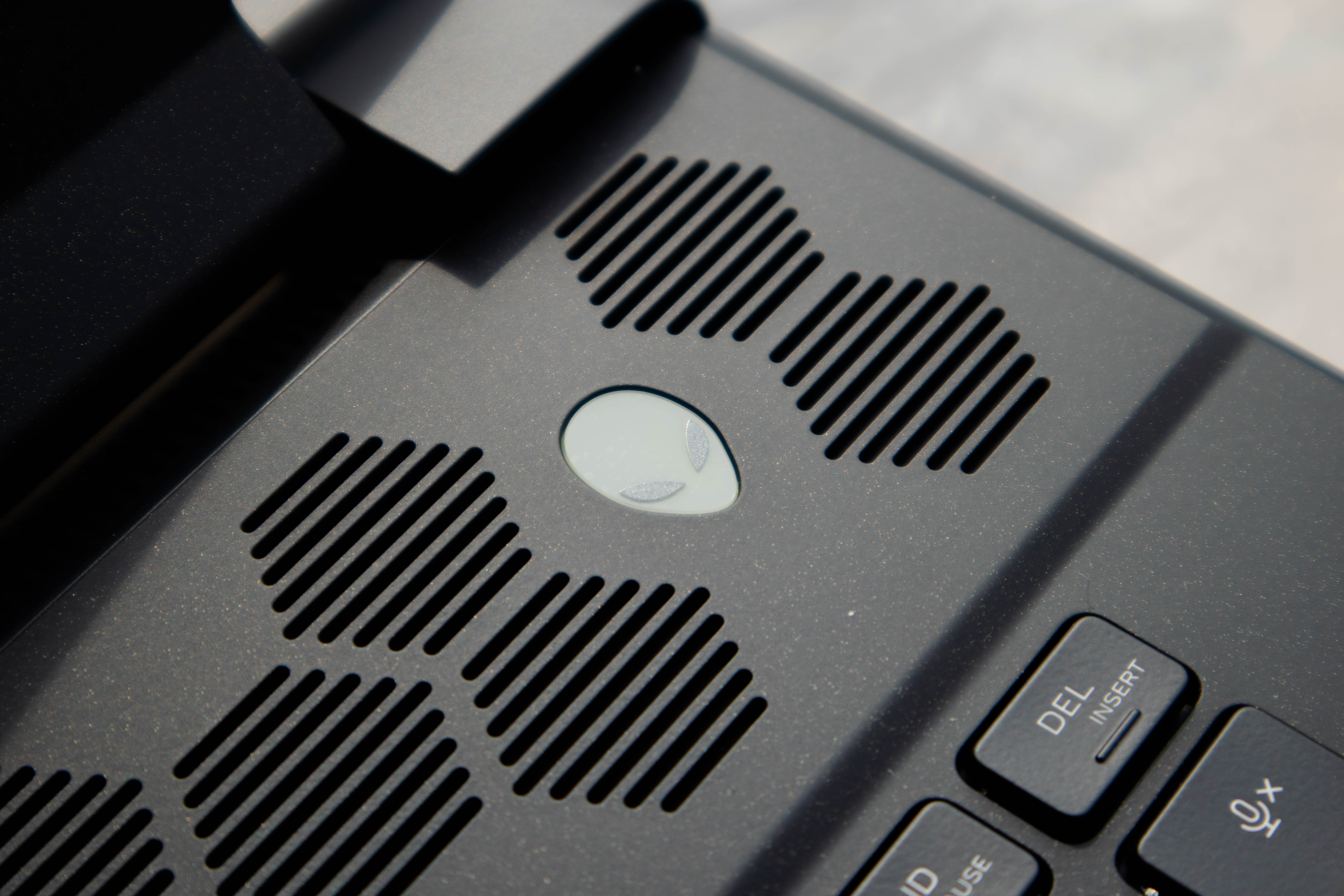
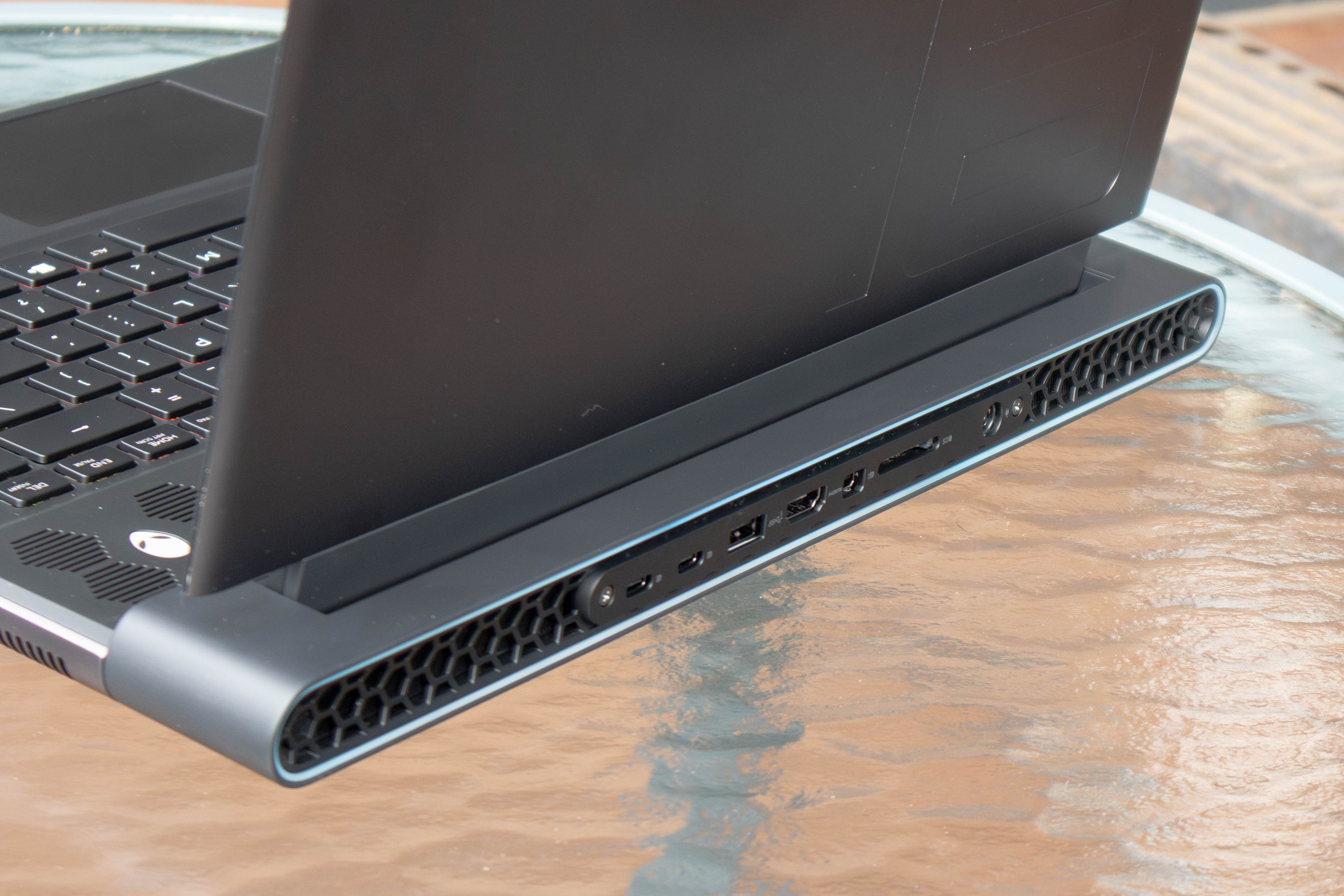
Specifications
Reasons to buy
Reasons to avoid
If you want your favourite games to look and run great, better than on even the most powerful consoles of the time, then you'll need a gaming laptop (or PC) and the Alienware M16 should be the best choice for most people. Prices vary but the model we reviewed had an AMD Ryzen 9 processor and a mighty Nvidia RTX 4080 GPU, and could put pretty much any title on the highest settings and deliver a smooth gaming experience.
This is not the lightest machine in the world at 3.26kg, but it's not sufficiently heavy that you'll dread moving it. In terms of looks, although it does sport the Alienware alien head logo, this is a pretty smart-looking laptop that wouldn't cause many double-takes when out in public.
The 16-inch QHD screen is a standout of this laptop. It has a resolution of 2560 x 1600 and a peak brightness of 450 nits. The refresh rate comes in at 240Hz, not quite as much as the Razer Blade 15 Advanced, but still way above what's needed. The model that we reviewed can hold its own against the worst any game dev has to offer. Our reviewer managed to play Doom: Eternal on its most demanding settings at 240FPS, maxing out the screen. The Alienware M16 manages around 3 hours of general use and only about 45 minutes of intense gaming.
Read more: Alienware M16 R2 review
Best premium
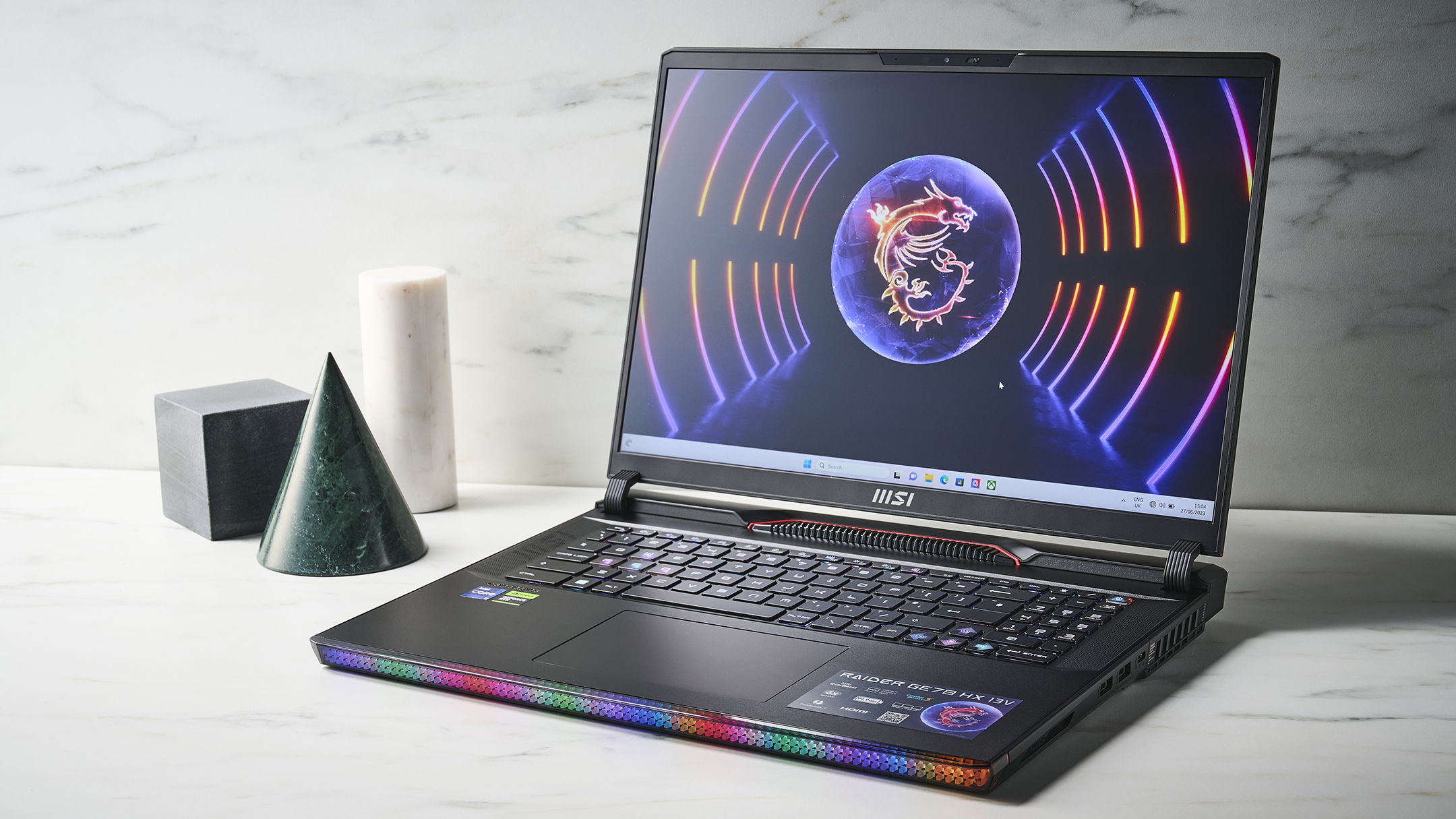
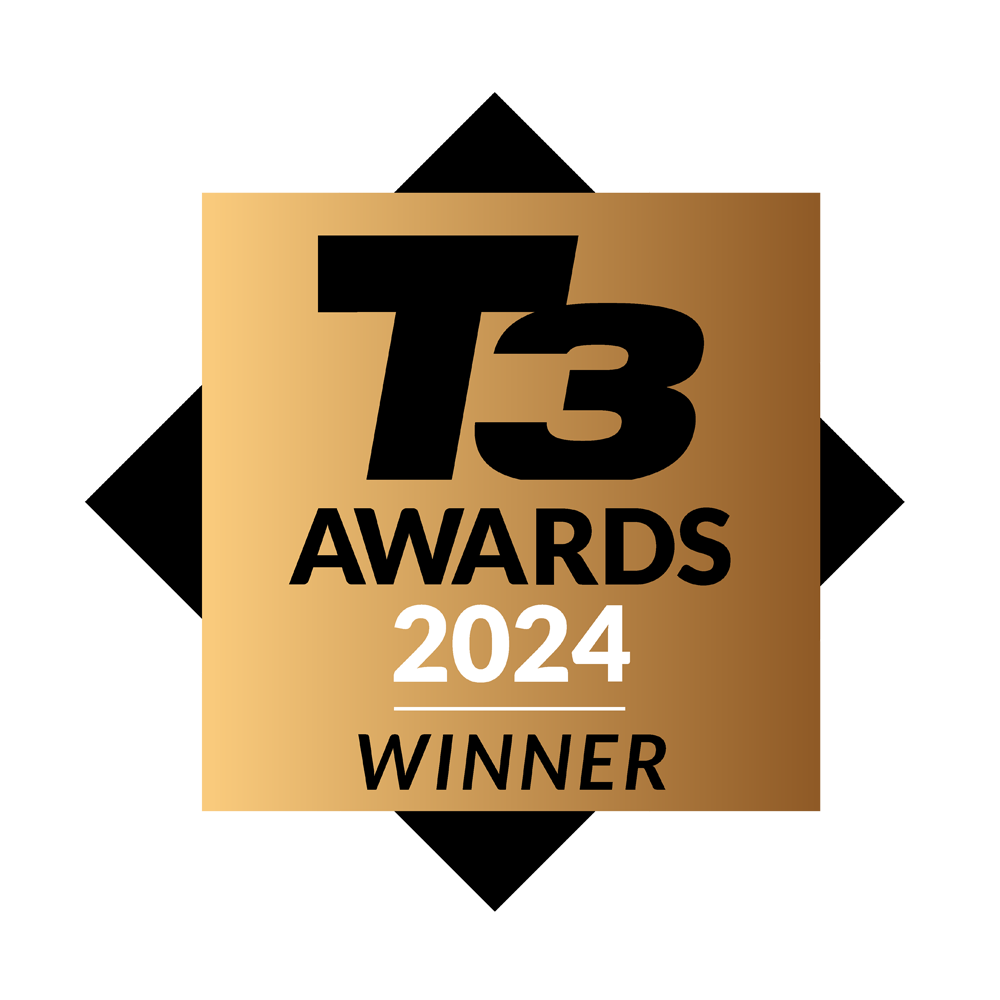
Specifications
Reasons to buy
Reasons to avoid
I know what you're thinking. The best part of four grand for a laptop? No chance. But hear me out. This is a machine that is extra in all of the best ways. Whether it's the Star-Trek-style lightbar on the front, transparent WASD keys, or the frankly absurd 10 ports of various connectivity styles.
With an Nvidia RTX 4080 GPU, I challenge you to find any game that can push it beyond its limits. A big, beautiful beast... and a T3 Awards 2024 winner, too. Looking at its design, "loud" is the word that comes to mind with the RGB lights all turned on. Honestly, I think this sense of fun is something all gaming laptops should have, it is after all a leisure activity. The metal casing is concurrent with a superb build quality.
It may have very visible hinges but the 17-inch QHD+ display is very easy on the eye. With a resolution of 2560x1600 and 240Hz refresh rate, you'll be able to make the most of the hardware under the hood. It's also safe to say you won't find performance wanting with the Raider. Playing 2023's ExoPrimal with Ray Tracing and textures cranked up to max with dozens of dinosaurs on screen, I couldn't get less than 90 FPS. The same went for Deathloop. Unplugged, however, things were a bit different (always the case for gaming laptops) but I could still get around 40FPS on Deathloop, which was a nice surprise.
On the battery front, the Raider will do around 3 hours of general use and about one hour of intense gaming.
Read more: MSI Raider GE78 HX 13V review
Best value
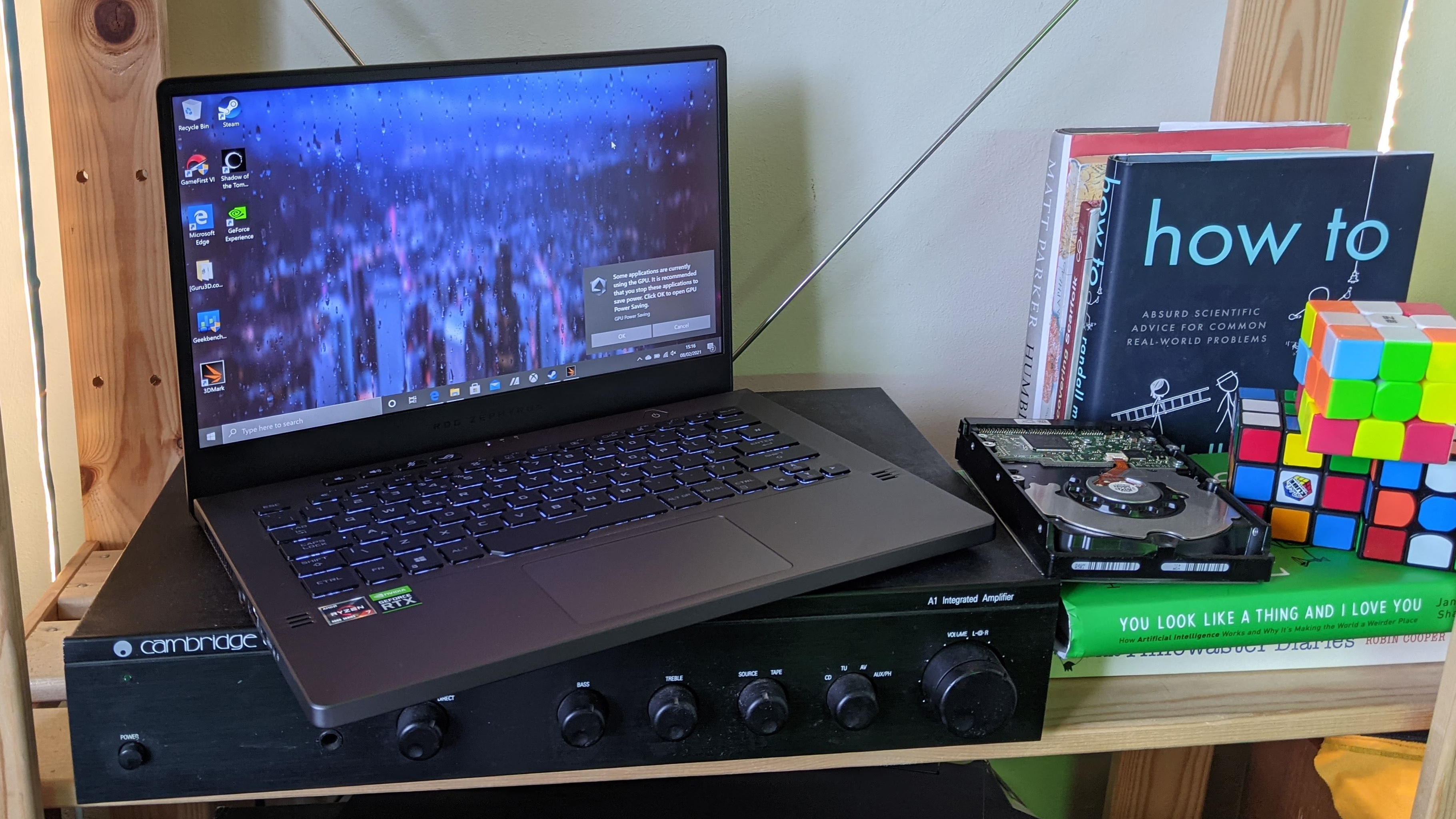
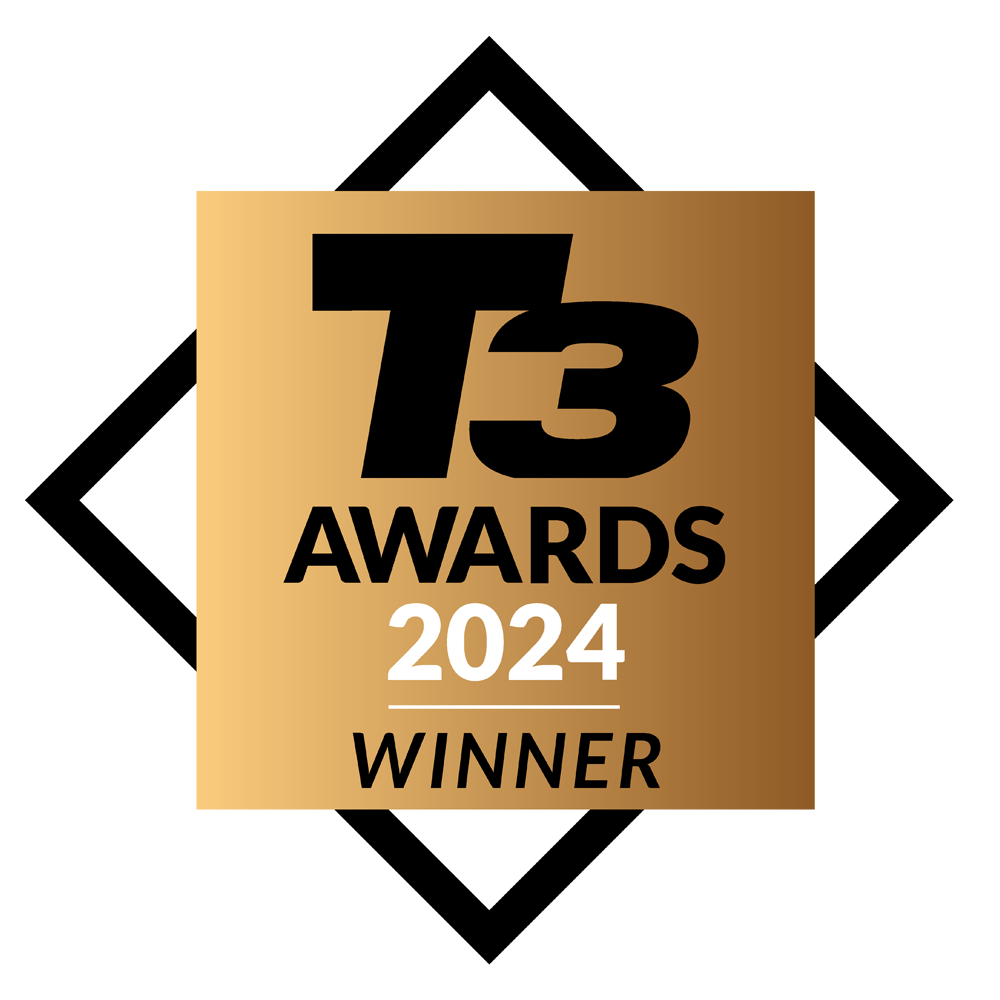
3. Asus Rog Zephyrus G14
Our expert review:
Specifications
Reasons to buy
Reasons to avoid
They say that good things come in small packages and the ASUS ROG Zephyrus G14 is proof of that. This 14-inch wonder is a few years old now but that now works in its favour with the price falling to a whole new level.
A 2020 T3 award winner, this is not a machine to mess with, but it's a great choice for both gamers and creatives alike. This is an ultra-thin machine that gives even the likes of MacBooks a run for their money on the eye test. It's not laden with RGB lights and loud styling choices, so you won't lose any street cred bringing it out at college or the office. In fact, the opposite is probably true.
It may only have a 60Hz refresh rate but the WQHD display is still a cut above when it comes to resolution. Squeezing so many pixels into a smaller 14-inch display produces spectacular results. Battery on gaming laptops is traditionally poor but when being used for traditional tasks the G14 can actually get around 8 hours of battery life. Admittedly, for gaming that will drop considerably, but still impressive for this category of laptop.
Read more: Asus Rog Zephyrus G14 review
Best work and play
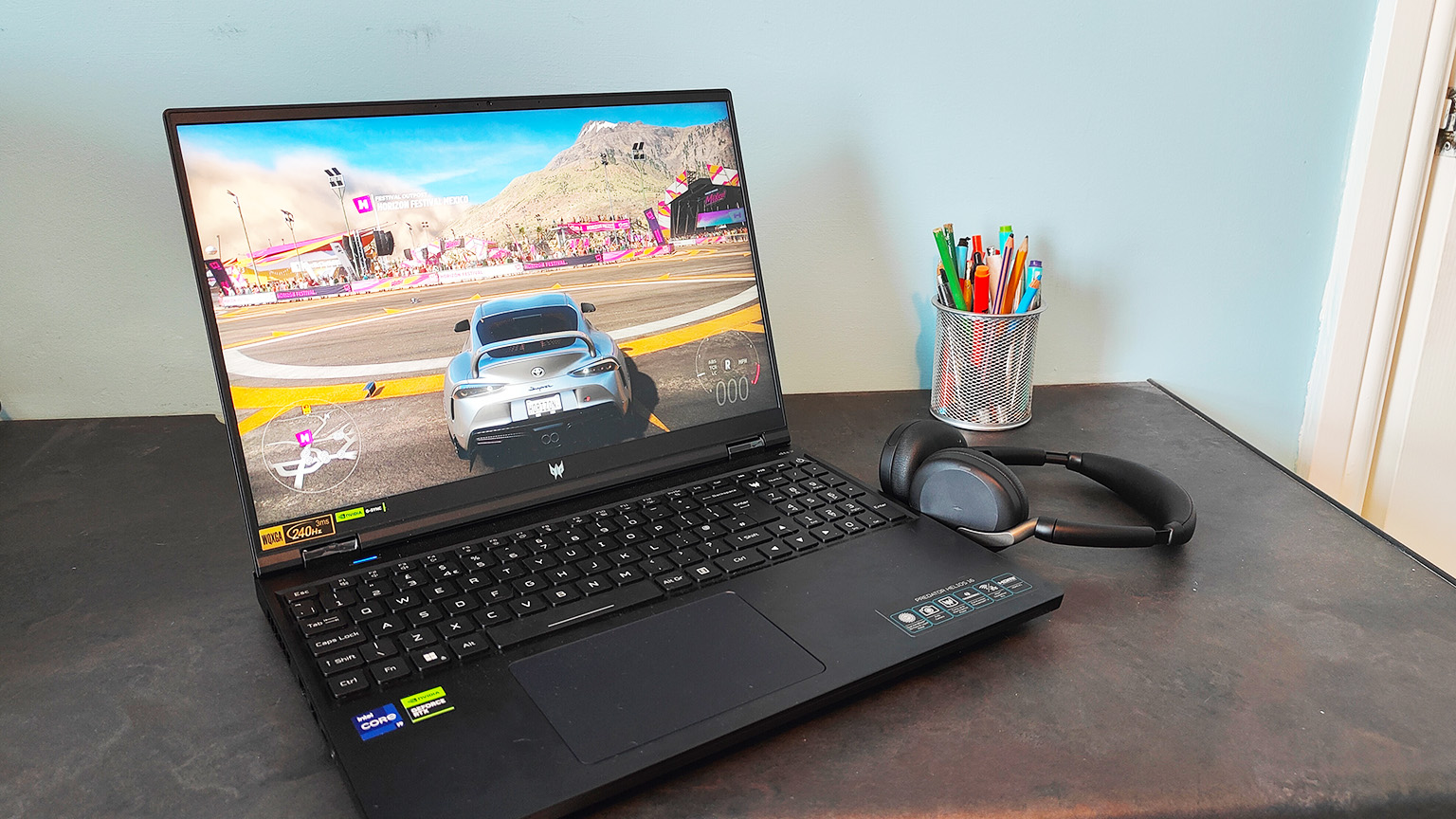
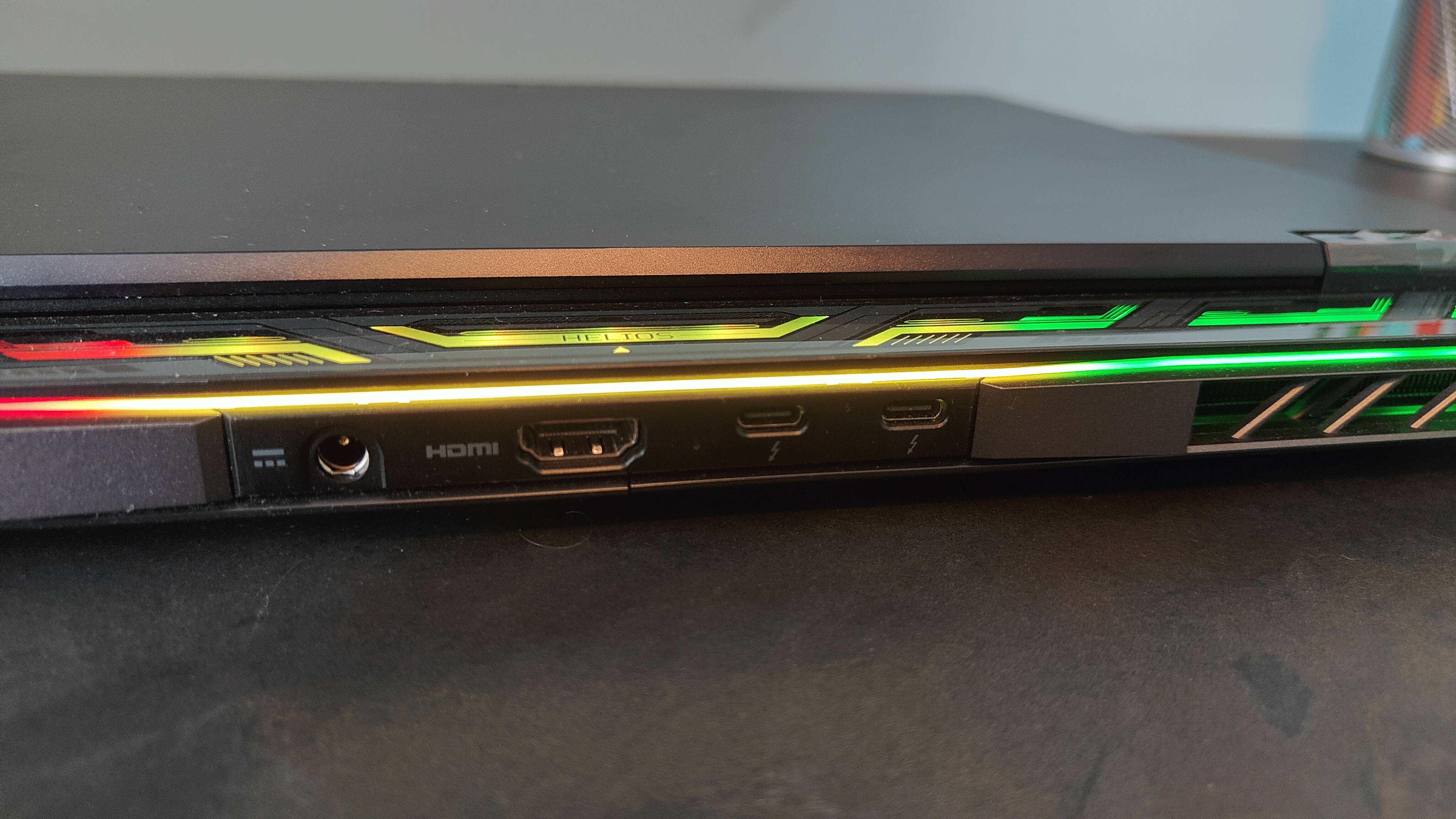
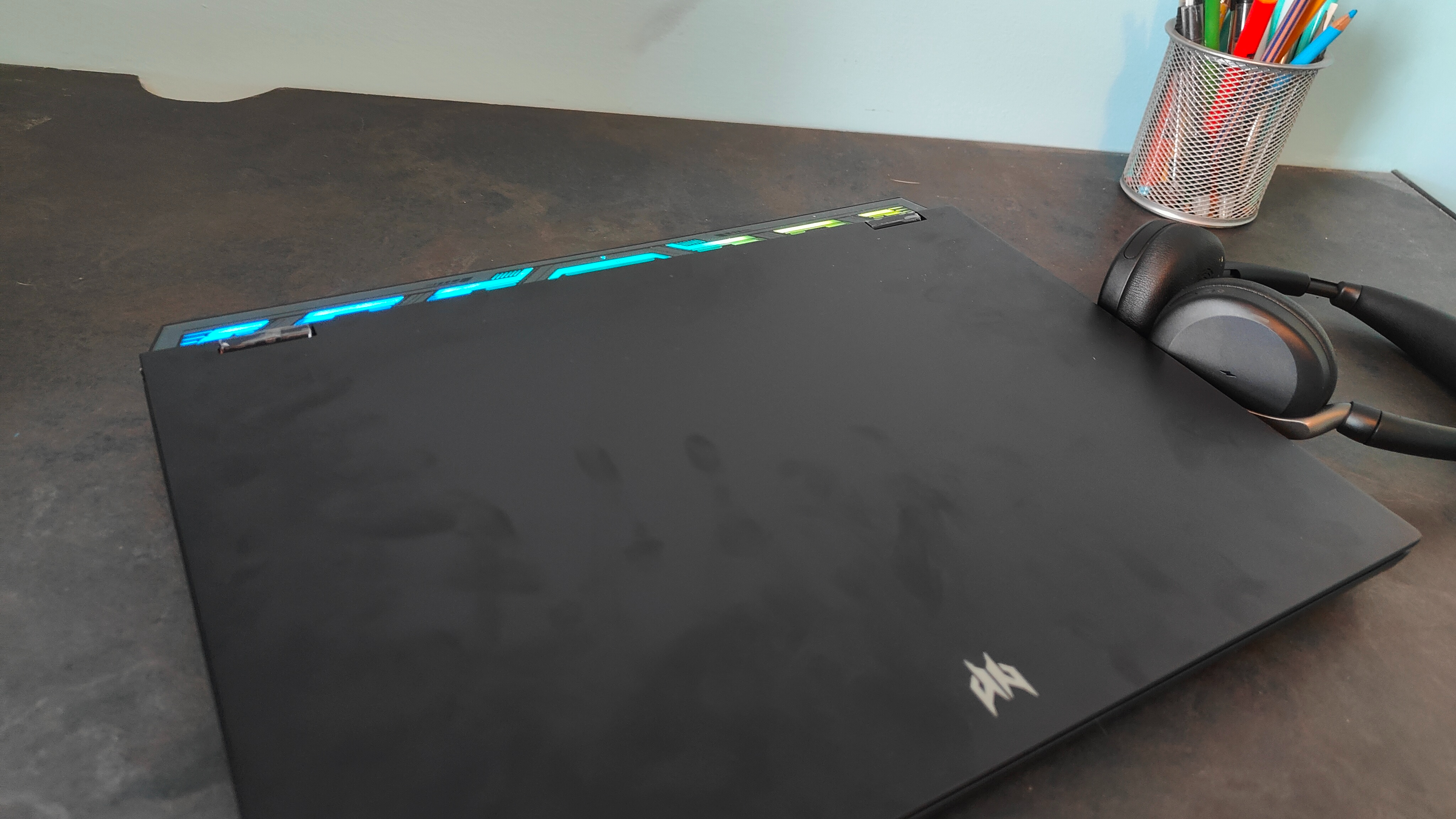
4. Acer Predator Helios 16
Our expert review:
Specifications
Reasons to buy
Reasons to avoid
The Predator Helios 16 from Acer is a jack of all trades that offers a solution to pretty much any concern. Aside from gaming performance, it offers a fantastic keyboard and superb connectivity.
Sporting a 16-inch screen, but still coming in at a reasonably svelte 2.9kg, and with a 13th Gen Intel Core i9 processor and Nvidia RTX 4070 GPU (at least in its 16 PH16-71 form, as reviewed here), there's a lot to love about this machine.
This is a nice balance between looking like a fun gaming machine with RGB lights along the spine, and just a nice smart laptop. The casing is almost completely plastic which is a shame but it does keep the cost and weight down. The 16-inch mini-LED display has a crisp 240Hz display capable of running games at high frame rates with a lush 2560 x 1600 resolution.
For the price you would expect excellence when gaming, and you'll get it. Thanks to an Nvidia RTX 4070 GPU you can expect to run ray tracing-enabled games like a charm. I played Deathloop on maximum settings at a consistent 90FPS and reached 120FPS on Forza: Horizon 4. If I've said it once I've said it 1000 times, gaming laptops do not have lengthy battery life. The same goes here, with the Predator Helios clocking around 4-5 hours of general use and just over 1 hour of intense games.
Read more: Acer Predator Helios 16
Best audio
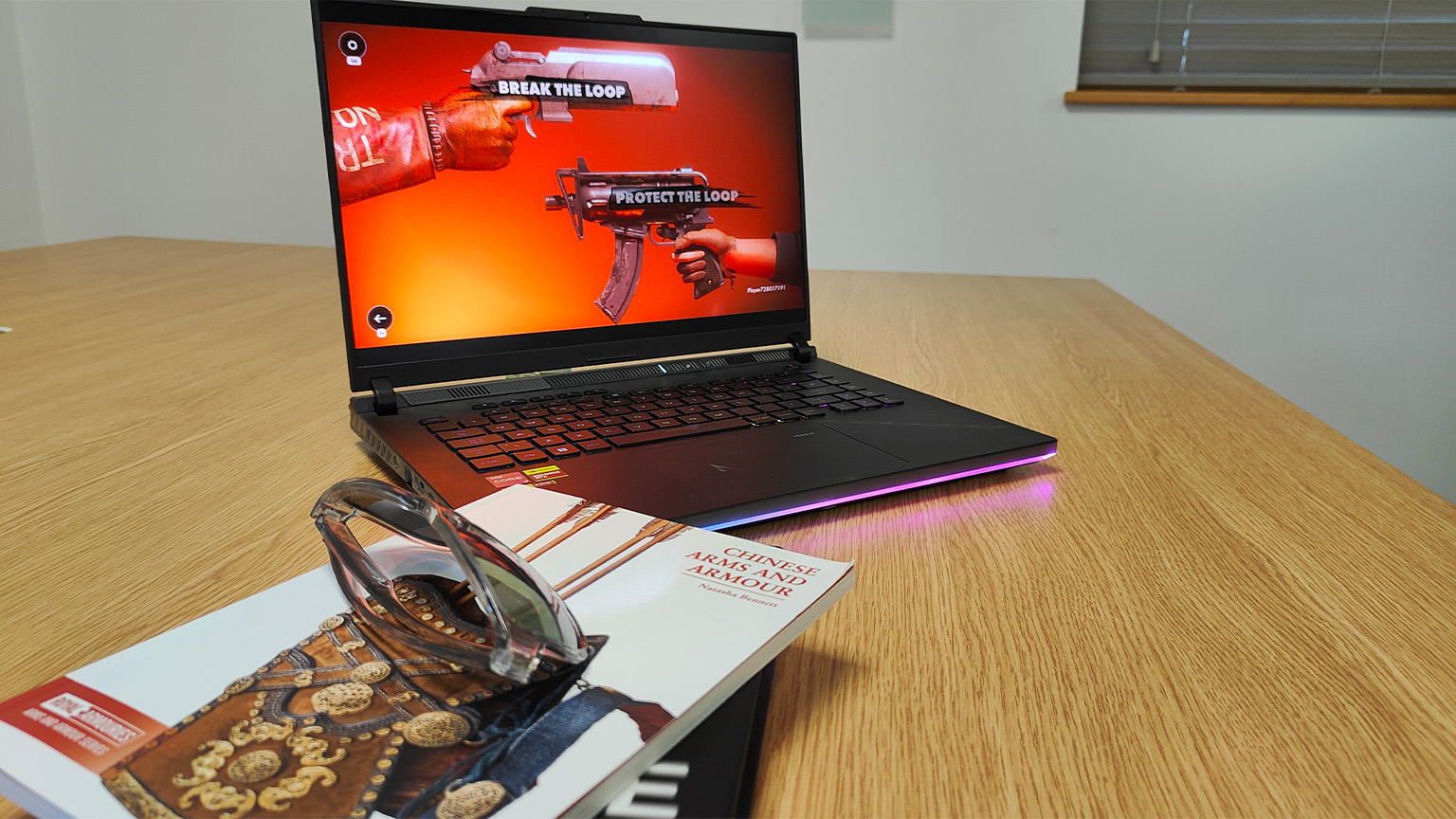
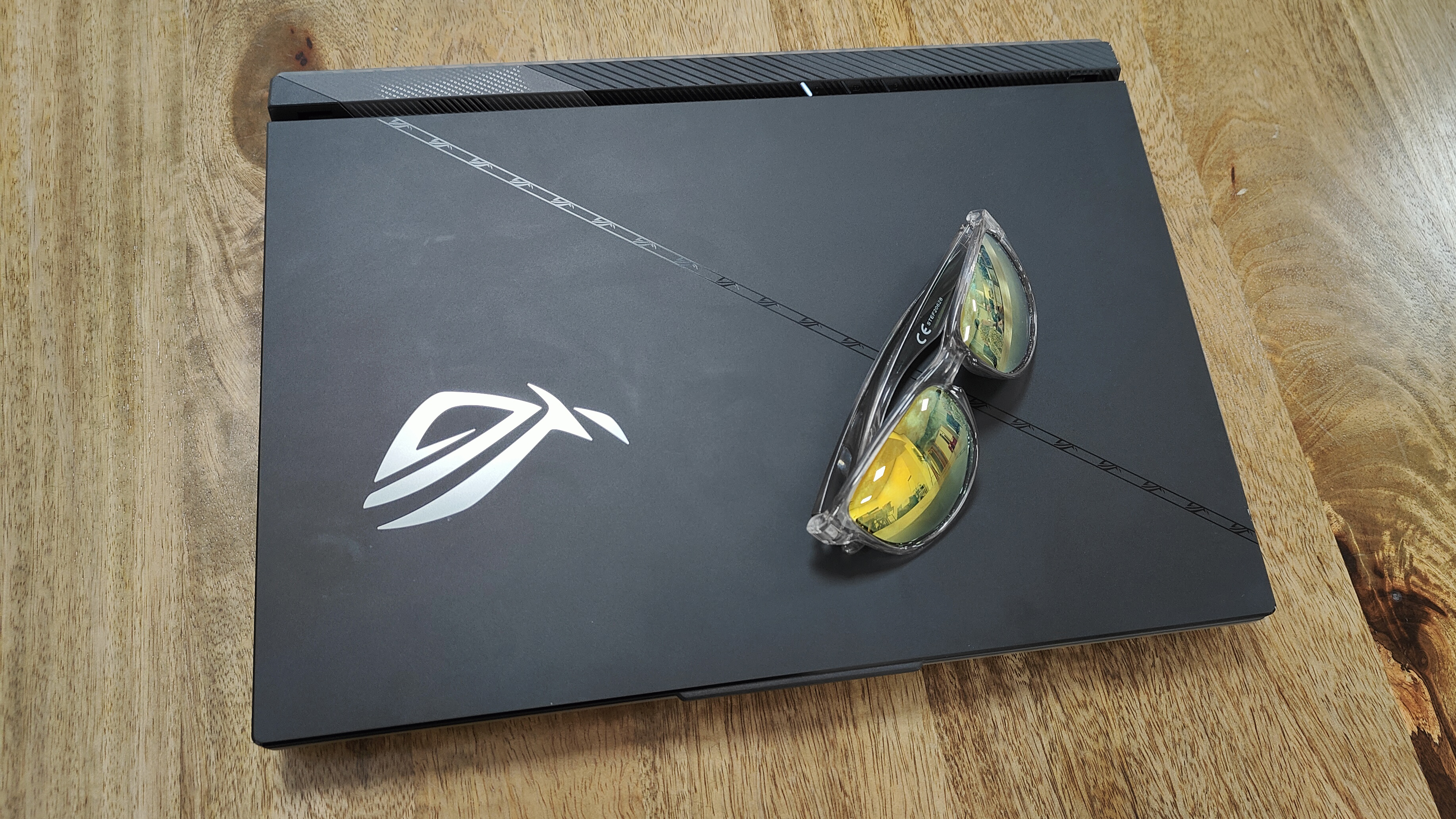
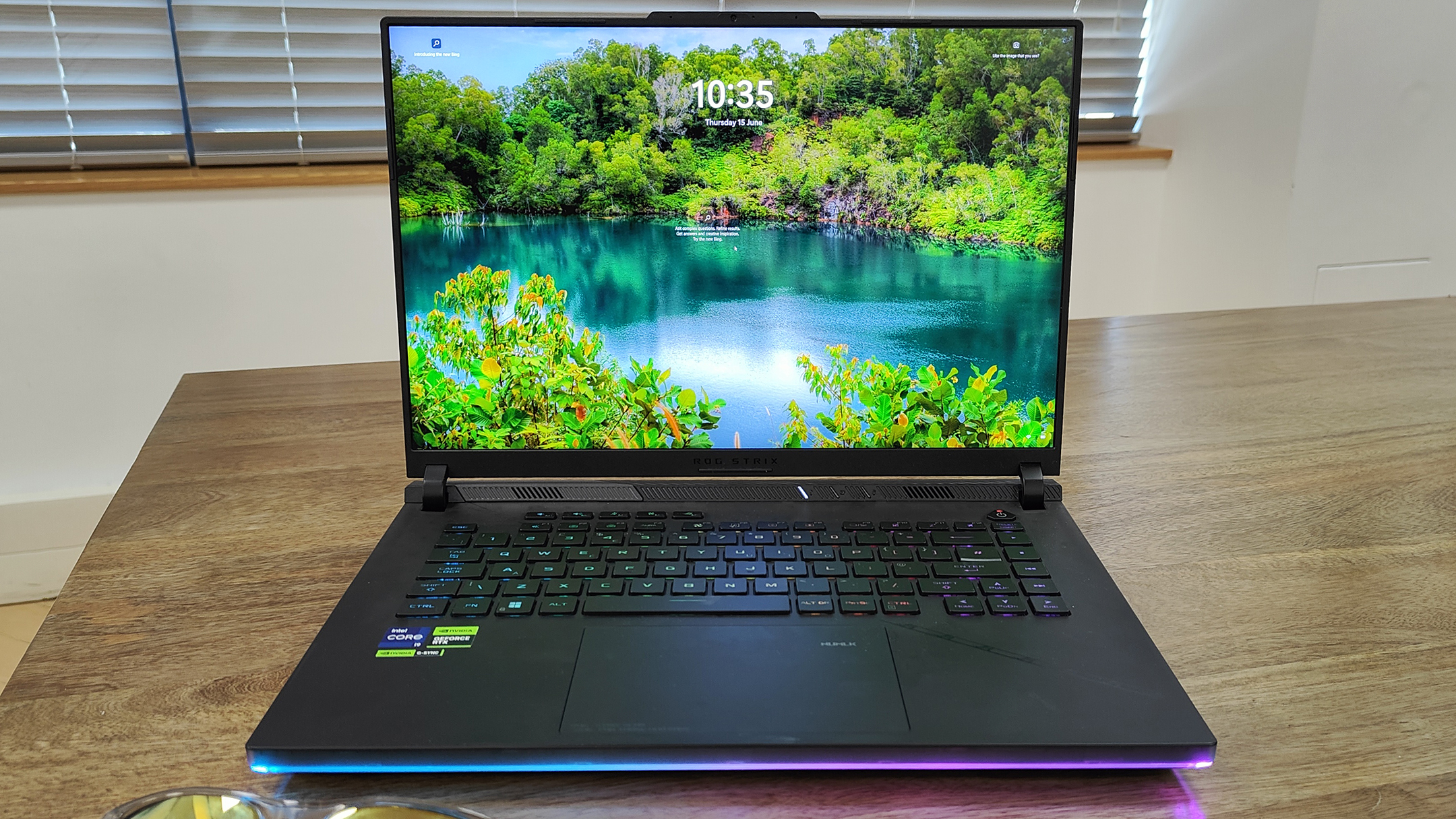
5. Asus ROG Strix Scar 16
Our expert review:
Specifications
Reasons to buy
Reasons to avoid
This 16-inch machine is an absolute blockbuster that undoubtedly challenges the best gaming laptops available even just on pure performance specs. A RTX 4080 GPU is one of the best you'll find in this guide and it's a strong all-round worker with exceptional sound, if you can tolerate a few imperfections, that is.
Its design is probably the biggest disappointment of this laptop. The look of it is fairly out there with a translucent base, but that might be to your taste. The main problem is with the amount of plastic all over this machine; in fact, it has a bezel of plastic running all the way around it. For over £3000, you'd expect a nicer finish.
If the laptop case isn't exactly easy on the eye, you can't say the same of the screen. With a 2560 x 1600 QHD+ display at a 240Hz refresh rate, you should be able to enjoy your favourite titles in all their glory. Full of raw power, the ROG Scar Strix 16 can mix it with the best of them. A 13th Gen Intel i9 processor is more than enough for pretty much anything, while the Nvidia GeForce RTX 4080 GPU will make even challenging games run like a dream. Under the hood, you do get 32GB of RAM – which is nice to see with some similarly priced laptops, like the Acer Predator Helios 16 only offering half that
For a gaming laptop, the battery of the Strix Scar is actually pretty good. It can handle around 5 hours of general use or two hours of intense gaming. A good rating for this category of laptop.
Read more: Asus ROG Strix Scar 16
Best big screen
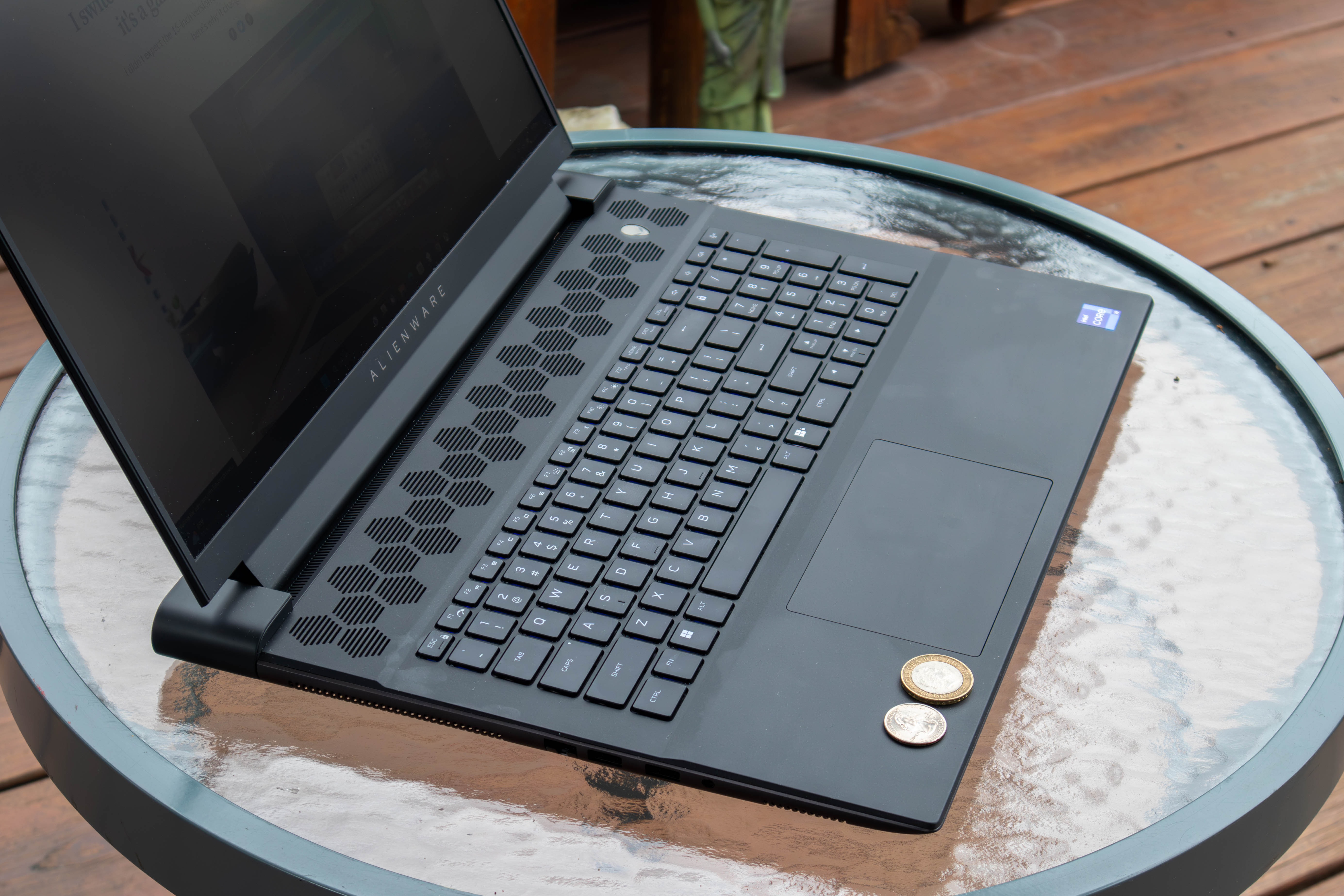
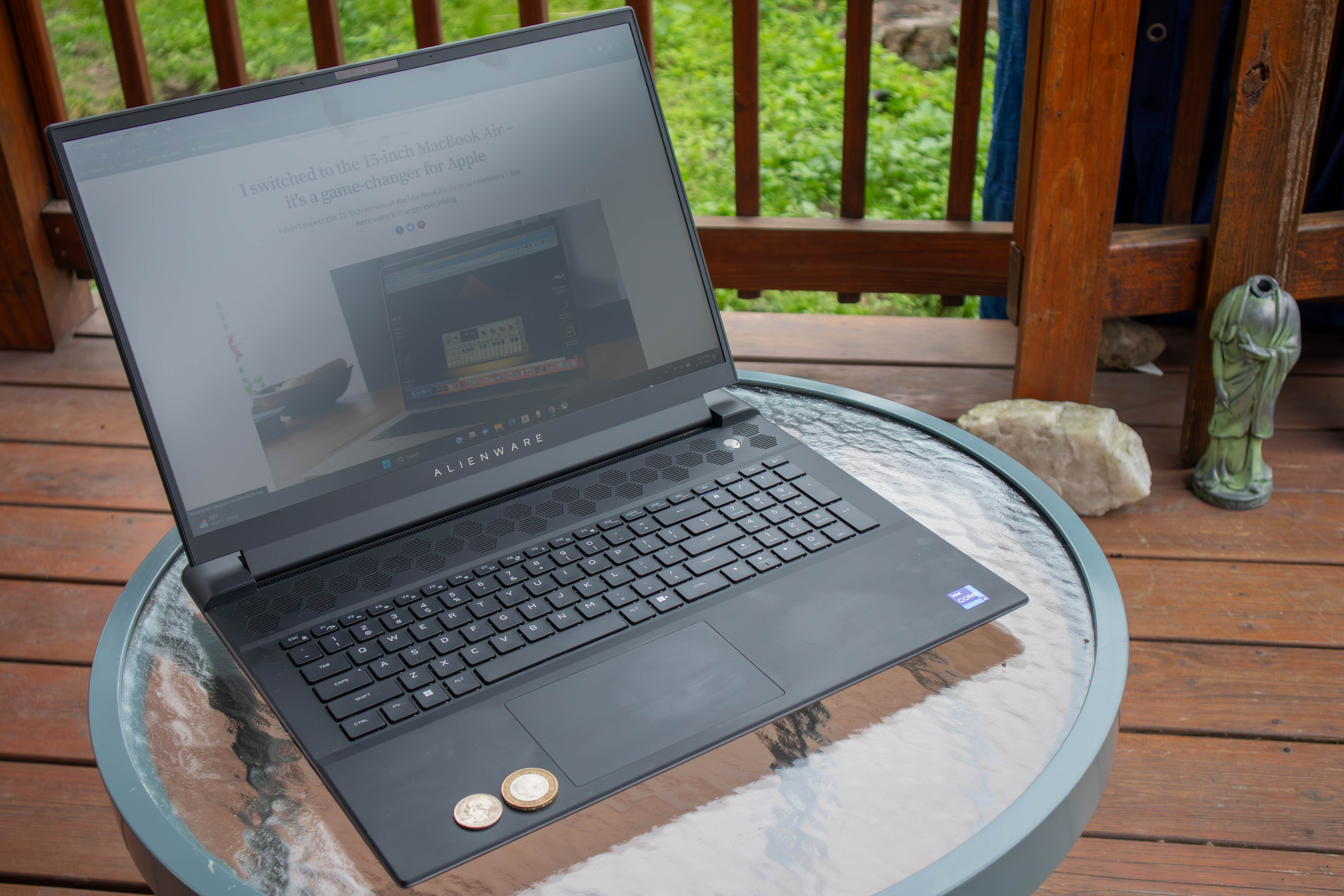
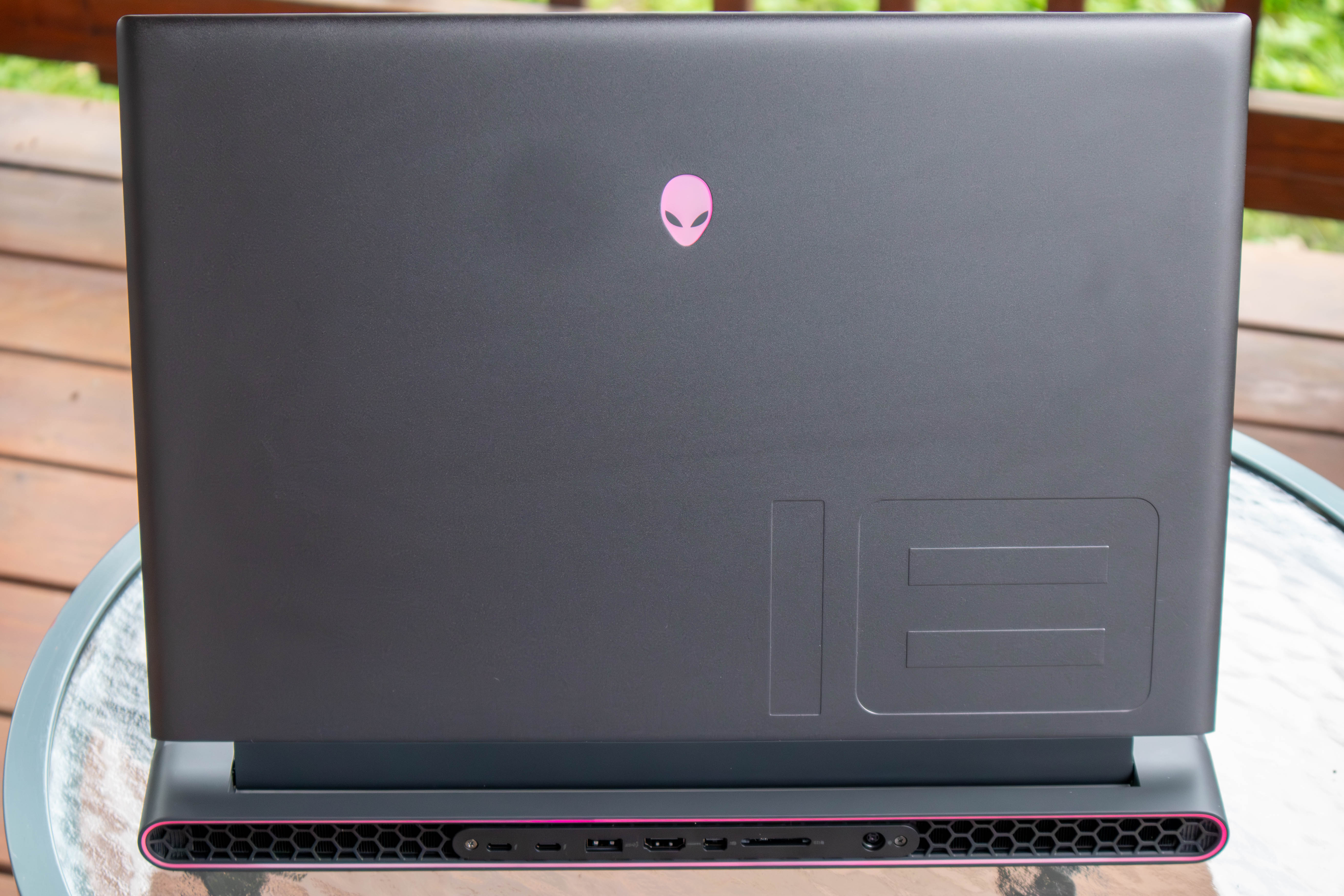
6. Alienware M18 R2
Our expert review:
Specifications
Reasons to buy
Reasons to avoid
A mammoth machine with an 18-inch screen and equally big performance specs like a RTX 4090 GPU, the Alienware M18 R2 didn't come to play. Weighing 4kg, you won't want to carry it with you all day, but it is definitely worthy of possibly replacing your desktop setup.
Measuring 410mm wide and 320mm deep, this is a big boy although it is not chunky- just a touch under 25mm thick. An 18-inch QHD+ display with a 2560 x 1600 resolution and 165Hz refresh rate is mighty impressive and one of the main selling points of this laptop. We just wish that it was a little bit brighter.
In our testing, we were impressed with the sheer power of this laptop. We could run Doom Eternal on maximum settings at a consistent 145FPS while F12022 also at the maximum settings produced an impressive 80FPS. Gaming laptops are not really made to be used away from their chargers but that is doubly so for the Alienware M18. We got around five hours of general use from the battery but intense gaming sessions saw the battery drained after only 45 minutes.
Read more: Alienware M18 R2 review
Best budget
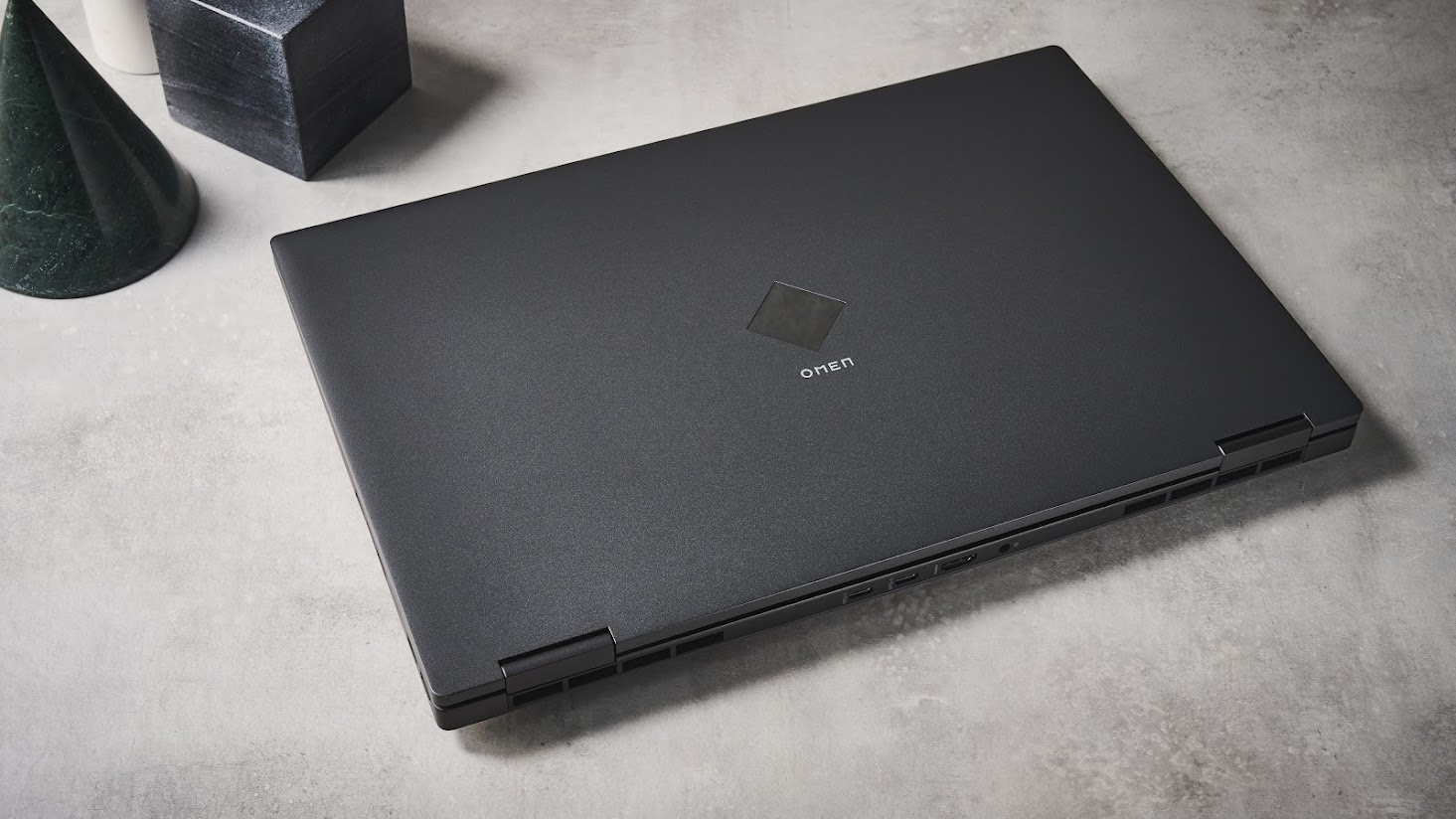
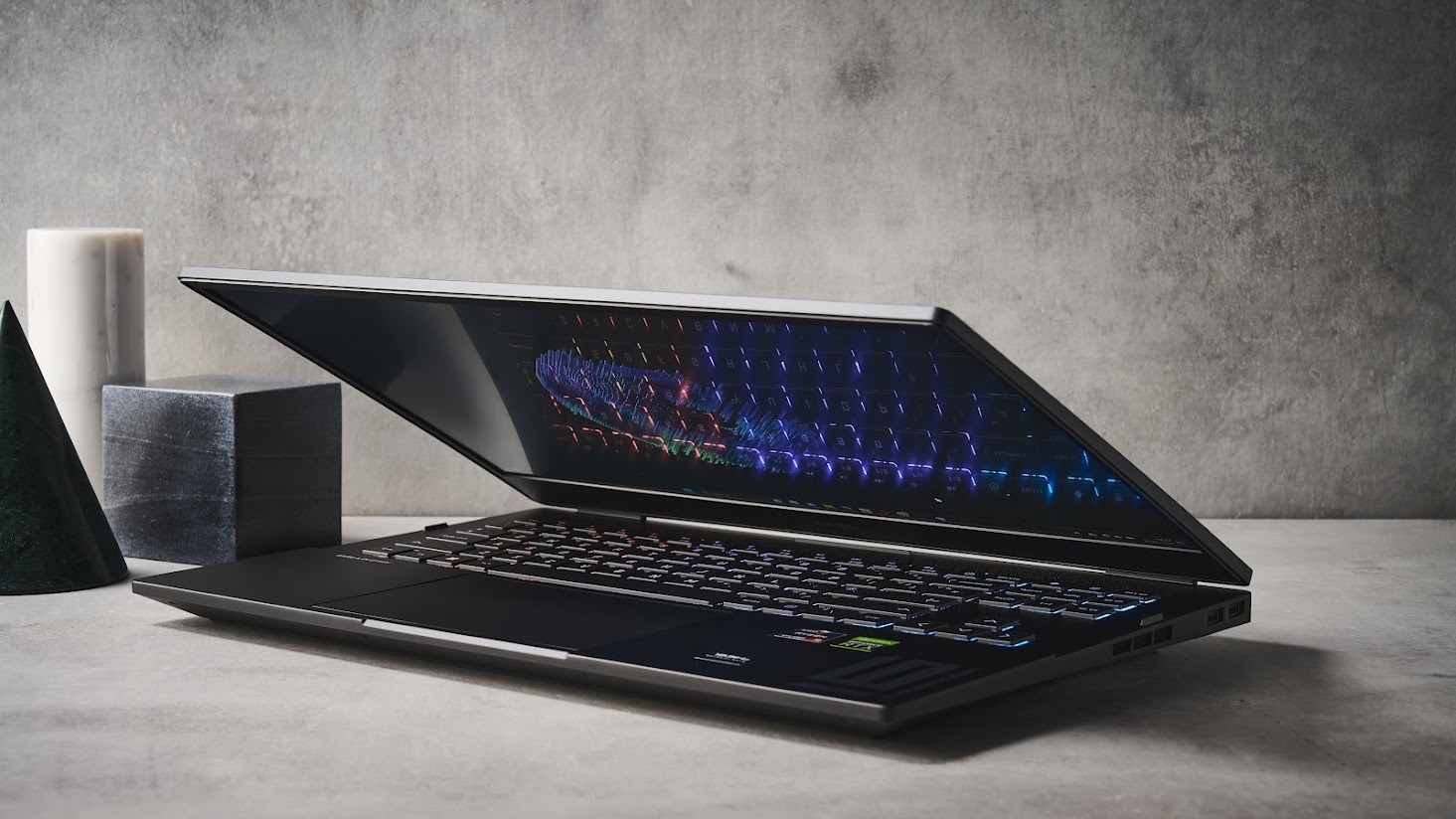
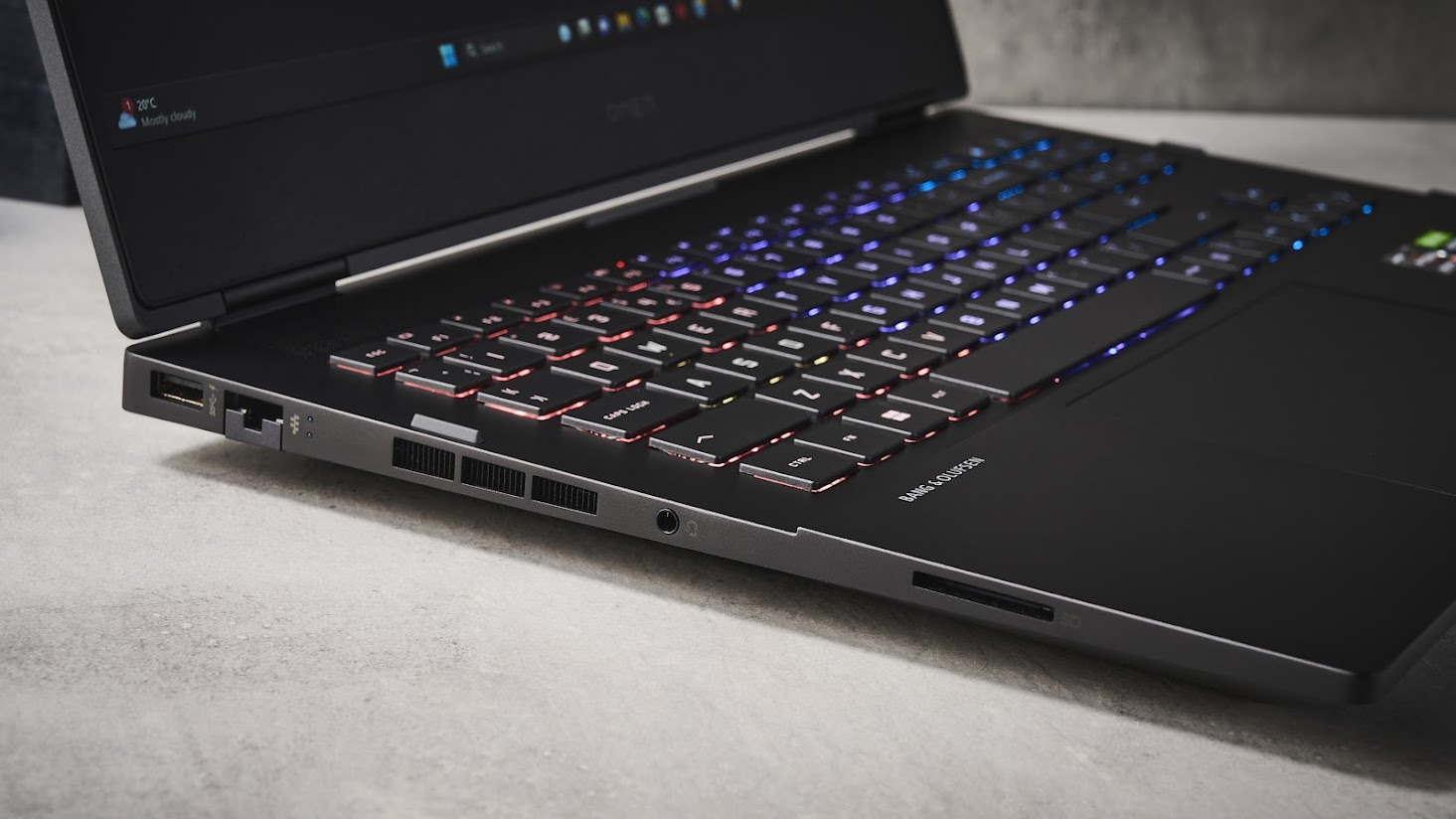
7. HP Omen 16
Our expert review:
Specifications
Reasons to buy
Reasons to avoid
If you have a more reasonable budget for your next gaming great then the HP Omen might be exactly what you're looking for. Coming in at £1599 it's a mid-range option well worth your time.
With an Nvidia GeForce 3070 Ti GPU and an AMD Ryzen 9 processor (6000 series) this laptop is no slouch and also is capable of punching well above its weight in some aspects. If you're looking for something that you could also bring to the office, then the HP Omen 16 is for you. Smart but not spectacular, this is not an obvious gaming laptop. It does have a rather large bezel below the screen which is a bit of a shame but the brushed metal edge does feel pretty premium.
While only a QHD screen, meaning you won't get the rich blacks of OLED, the 2560 x 1440 resolution should still be pretty crisp. A 165Hz refresh rate and 3ms response time should keep things smooth and responsive when gaming. Playing Ghostwire Tokyo, a game with lots of particle effects and rich textures, I could manage a solid 60FPS on maximum settings provided that ray tracing was turned off. With ray tracing enabled this dropped to a slightly disappointing 40 FPS.
Something that is worrying is the performance away from the charger. Playing Grounded (which doesn't have ray tracing) I could manage a consistent 60FPS on maximum settings, only to see this drop to around 15FPS when running on battery power. Stay plugged in for the best performance. If you've read any of the entries in this list you won't be holding out much hope for the HP Omen 16, but you'd be wrong. Unlike many other gaming laptops, it actually features a pretty solid battery life of around 7-8 hours from general use and around 2 hours when gaming.
Read more: HP Omen 16 review
Best ultra budget
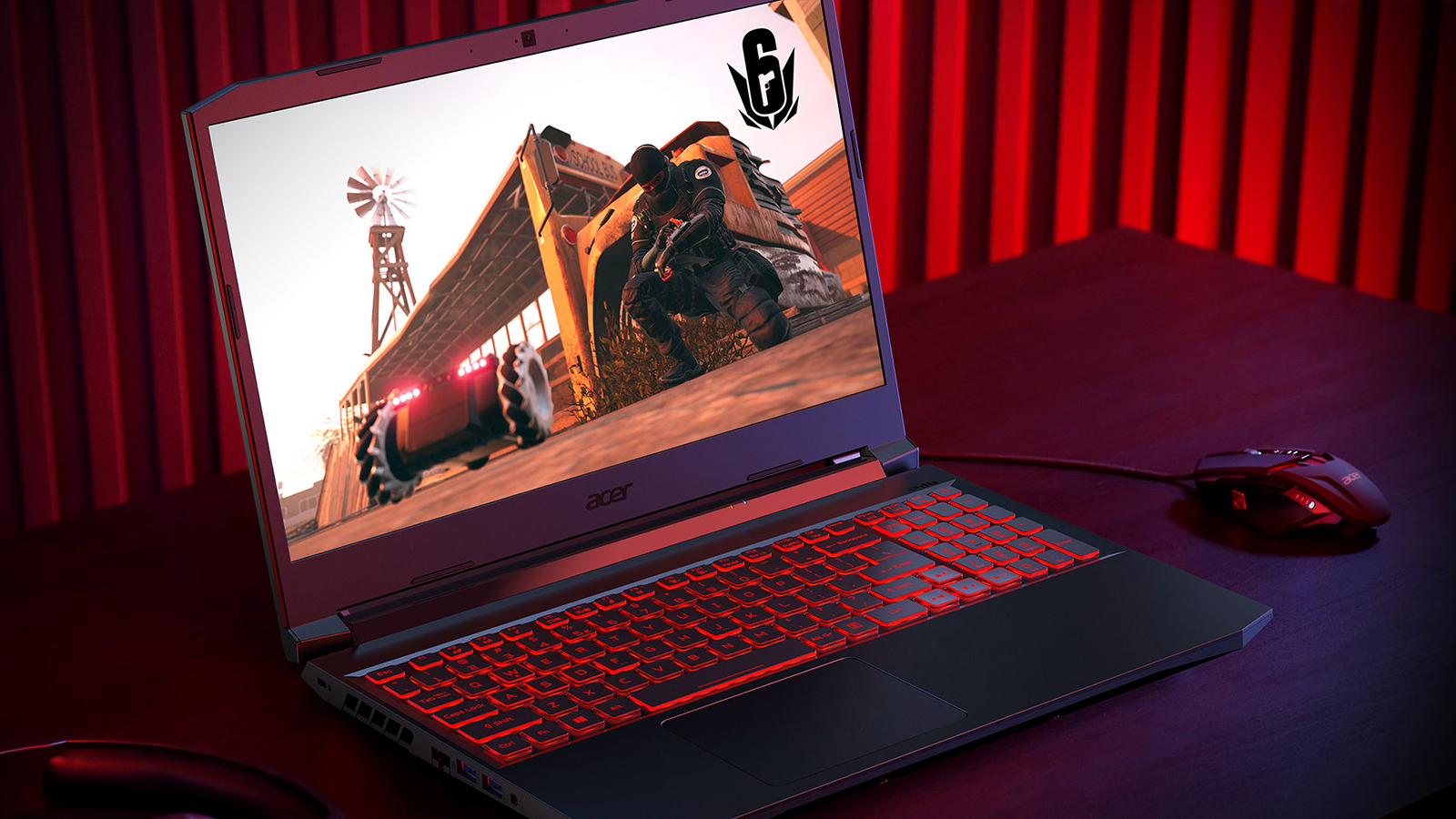
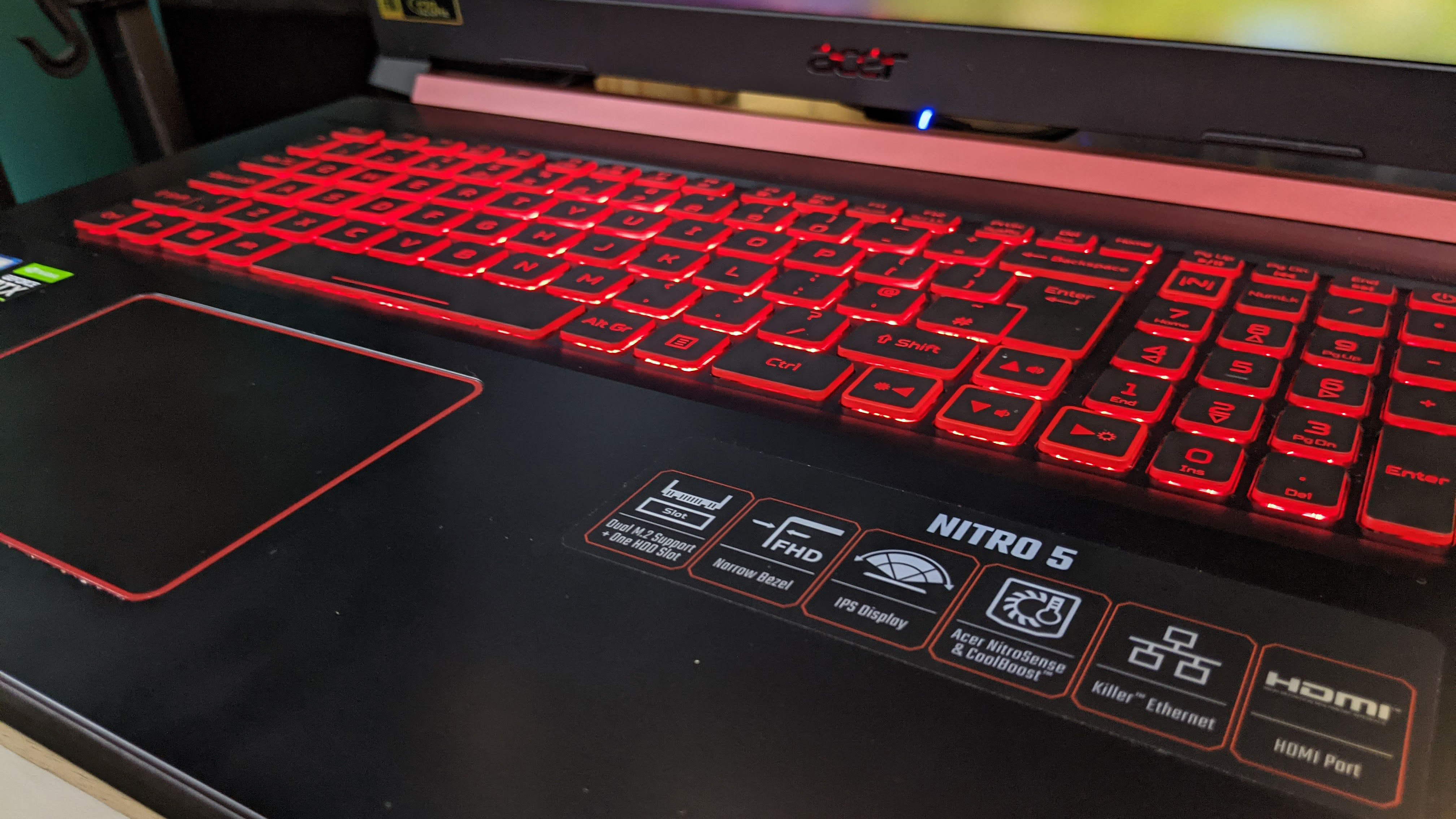
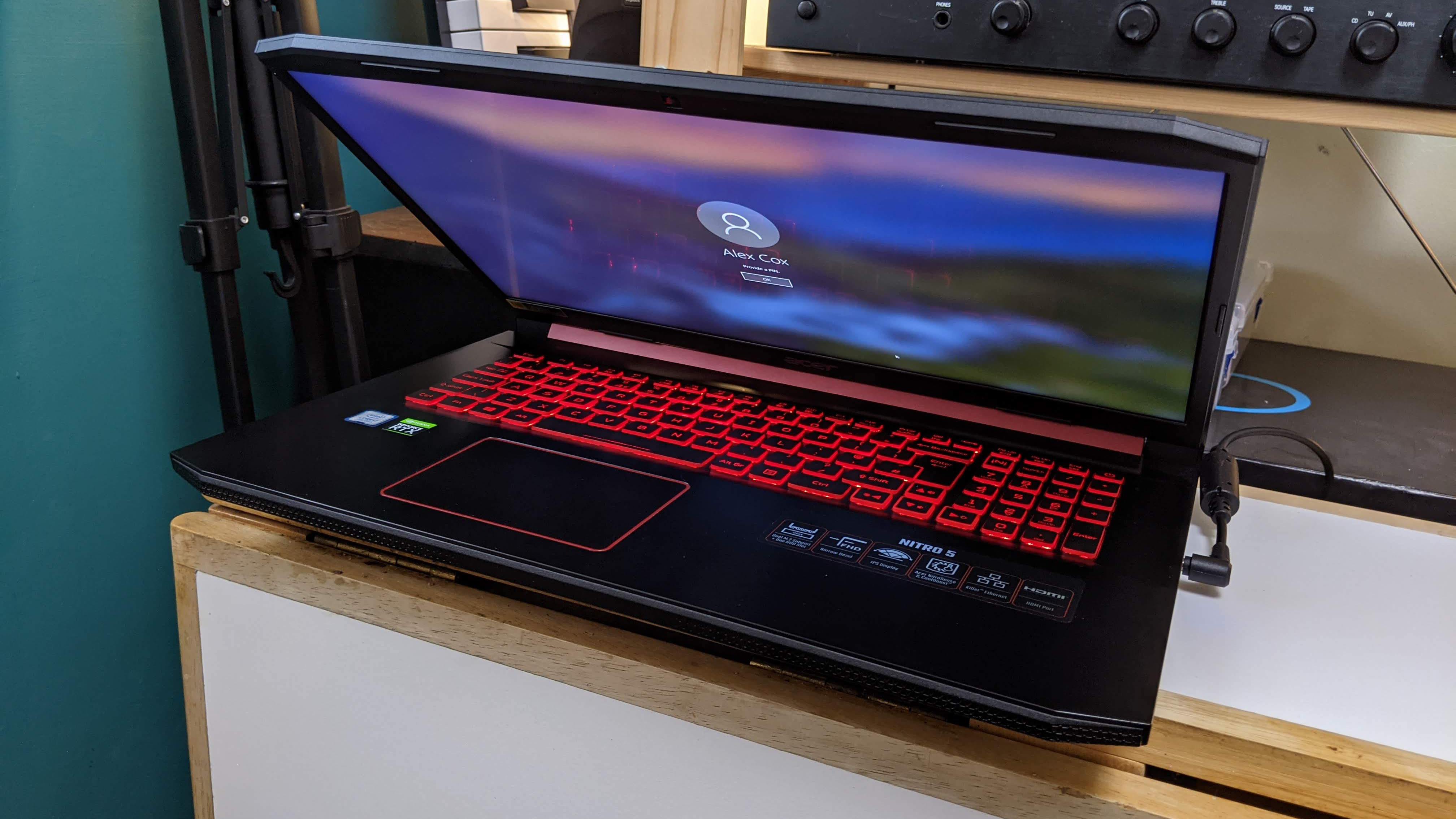
8. Acer Nitro 5
Our expert review:
Specifications
Reasons to buy
Reasons to avoid
Gaming laptops can stretch to well over £3000 for a leading model, PC gaming is an expensive hobby, and the price of the Acer Nitro 5 is certainly tempting. Of course, you won't be matching the sheer power of these more expensive machines but if you're a student or on a tight budget, this is a great gateway machine.
If you're an RGB nut you might be disappointed with the red-only lighting options on the Nitro 5, but I really like the commitment to one colour, and the angular corners. Obviously at this price, expect plastic to feature heavily. The form factor is not amazing but it does the job. Display-wise, for the money, a 120Hz refresh rate display is fair enough and should serve most gamers well. The 17.3-inch size is also a nice luxury to have compared to the more popular 16" gaming laptop models.
Don't expect to run Cyberpunk 2077 on ultra settings but you should still see a decent showing from the Acer Nitro 5. If you go into it with reasonable expectations you should be pleasantly surprised. Those who want to play League of Legends or Football Manager effortlessly will be pleased. This is one of the most underwhelming aspects of the Nitro 5 with many reporting just 2 hours of idle battery life. When gaming expect even less, so it's best to stay plugged in.
Read more: Acer Nitro 5
Best smooth screen
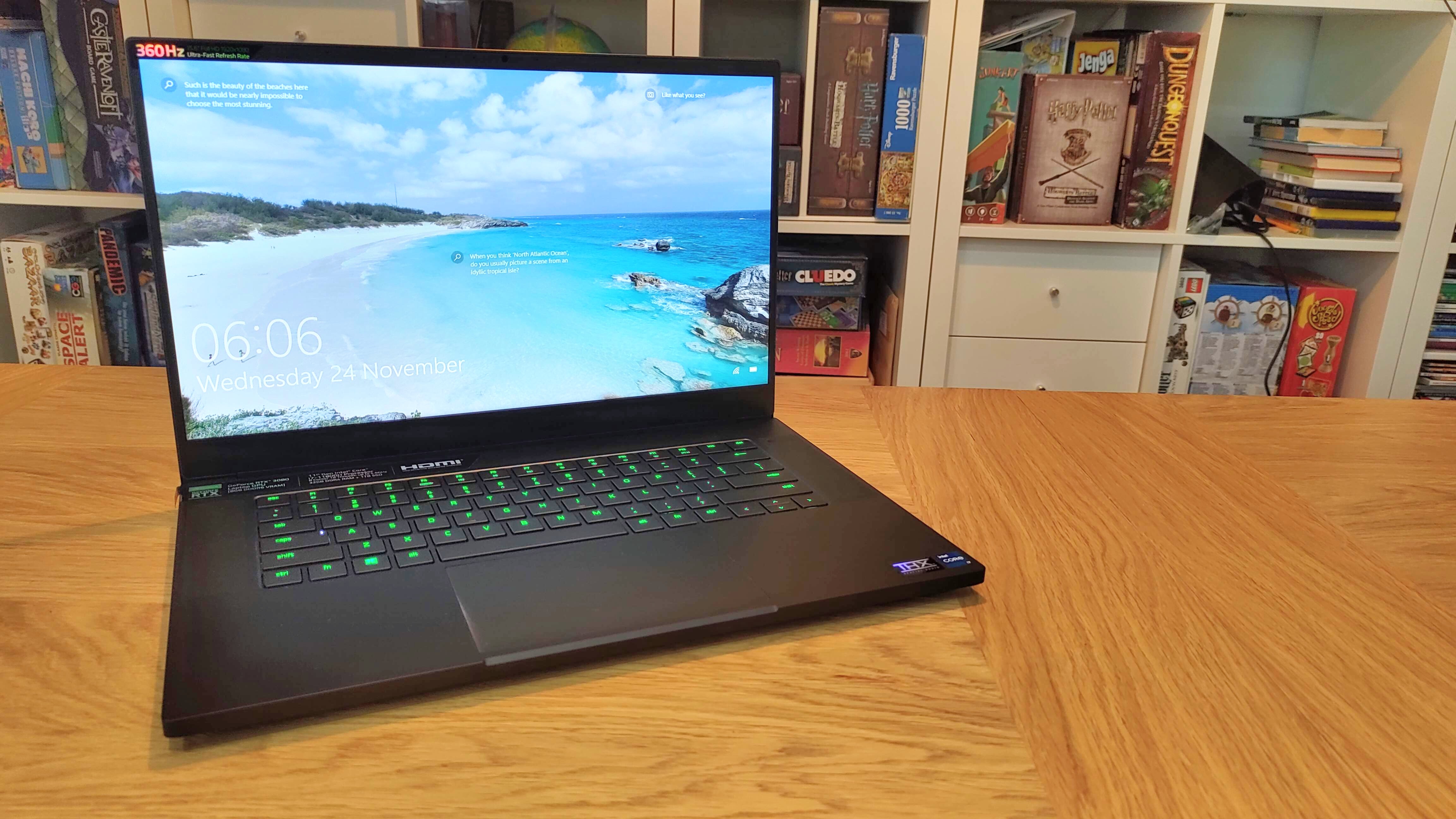
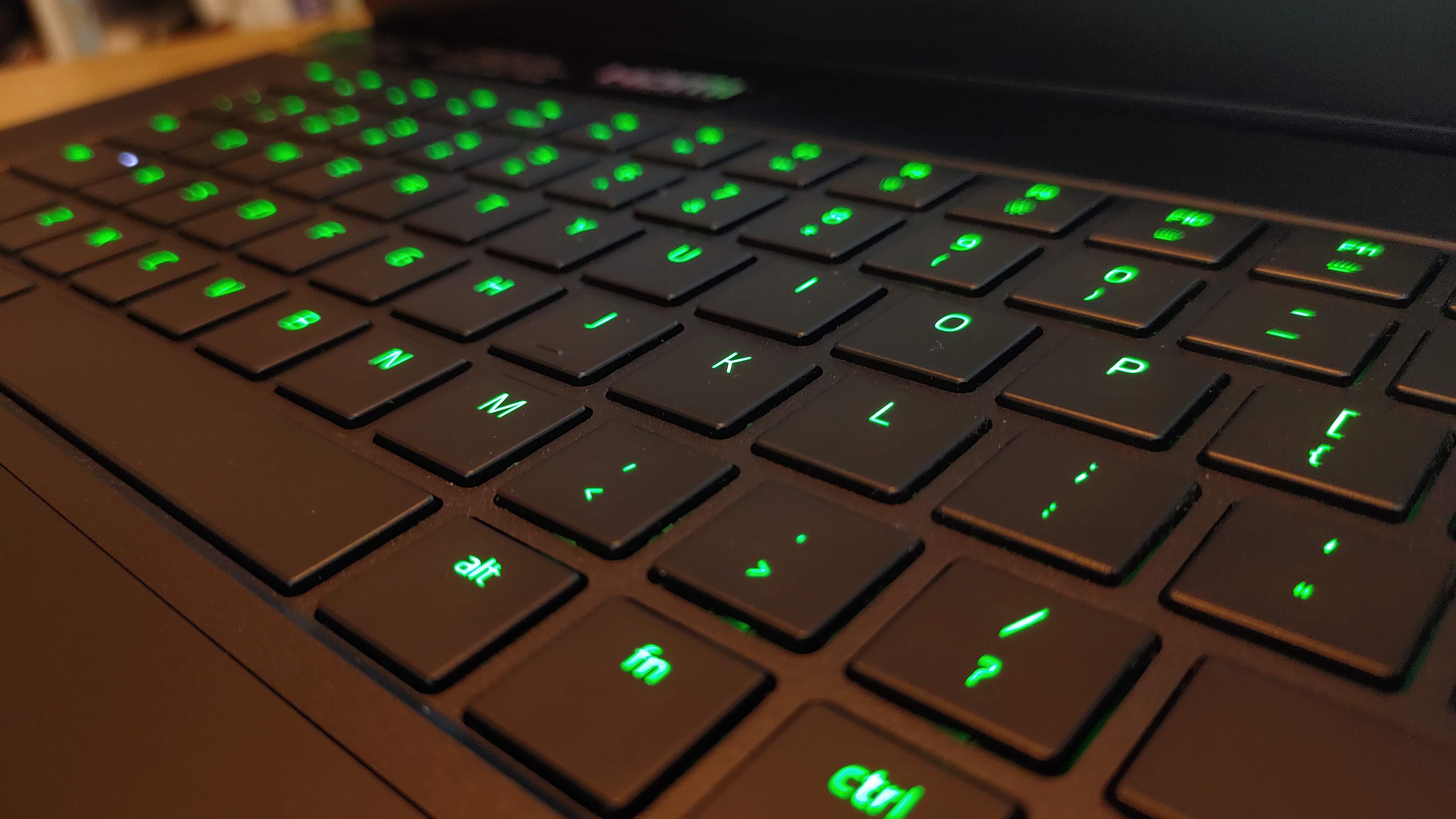
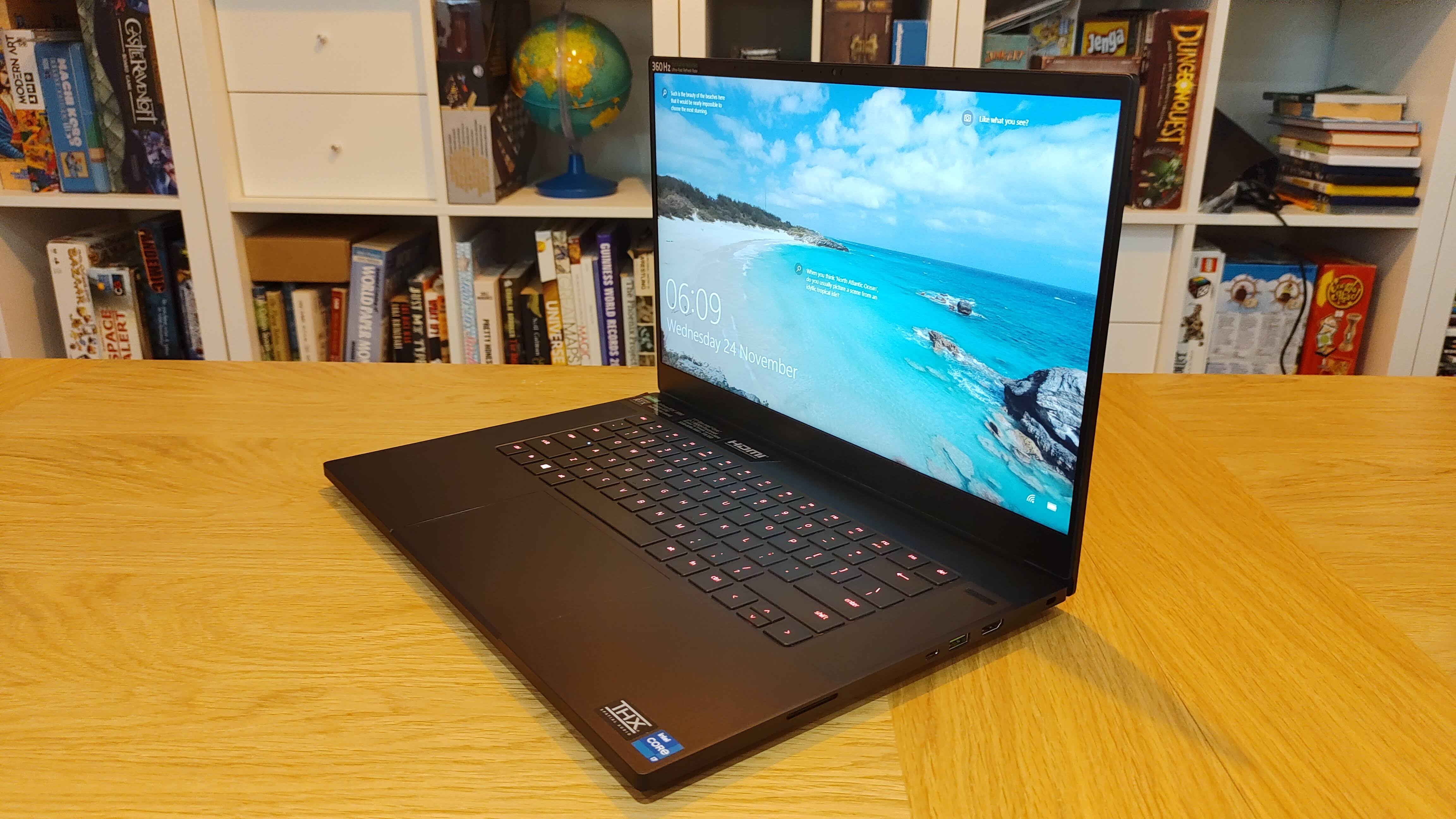
9. Razer Blade 15 Advanced
Our expert review:
Specifications
Reasons to buy
Reasons to avoid
This is a machine that will offer you a big performance tradeoff, offering an answer to the great PC gaming debate. Frame rate or resolution? Razer's answer is very much frame rate. With a 360Hz refresh rate, you should have the smoothest gaming experience of your life. But be warned the resolution is only 1920x1080.
Its design isn't as loud as other gaming laptops, this is a more elegant design in a deep black. Our one qualm about the design would be the bumper bezel at the bottom of the screen. As mentioned, the dreamy 360Hz refresh rate is the standout element of this laptop but this does come at a cost to the resolution (only 1920x1080).
The RTX 3080 GPU is powerful enough to run pretty much anything at maximum or nearly the maximum settings, particularly given the resolution of the screen. In our testing we found the Razer to put in a pretty impressive showing with around five and a half hours battery life in general use. As is always the case, expect much less when playing strenuous games, around 1-2 hours.
Read more: Razer Blade 15 Advanced
How to choose the best gaming laptop for you:
Look at your gaming library: What type of games do you like to play? Will your favourite titles benefit from a high-end performance boost or would you be better off saving your money? If you're primarily a Minecraft or League of Legends player it's probably not worth the outlay. Compare that with AAA titles, particularly shooters that will seem massively better when running on full settings and at an ultra-high frame rate. If you fancy yourself a competitive gamer, a refresh rate of 165Hz or more is pretty much essential.
Consider your budget: These laptops don't come cheap it's fair to say, several times the price of a current-gen console. Prioritise what you want and how much you're willing to pay. If you're going to spend over £3000 on a laptop, make sure you love it first.
Do you intend to use an external monitor: If you're thinking about gaming on the go, then using the laptop's own screen is pretty much your only option so plump for something with a crisp resolution and high refresh rate. If however, you've got one of the best gaming monitors and intend to be largely static, then you are probably ok to prioritise other aspects of your gaming laptop.
What are you going to use it for: Is this going to be a dedicated gaming-only machine or are you planning on taking this laptop to work (or your home office) this will likely inform what you are looking for. If you're looking to work and play on the same machine, you'll probably have to steer clear of some of the more ostentatious designs and prioritise battery life and keyboard experience.
How we tested these gaming laptops
Playing games might be fun, but at T3 we consider reviewing gaming laptops to be serious business. We live, work and play with these machines, writing detailed reviews explaining our judgments.
We review each laptop by first judging its design. This includes (but is not limited to) the aesthetic, build quality, durability and practicality of the machine. From there, we consider the display. Not just what the specification of it is but the implications that has on using the screen, is it smooth? How does it cope in direct sunlight? That's not an easy one to test in the UK at times but we get it done.
Of course, if someone has to play games for the good of humanity, we're happy to do it. We play a whole host of titles from indies to AAA and note not just the performance but also the user experience, does the design of the keyboard for example help or hurt the gaming experience?
While living with the machine we can get a grip on the actual battery life (not just manufacturer claims) and any special features that we think are worth knowing about like Thunderbolt 4 connectivity. Only after spending days and even weeks with these laptops will we feel comfortable awarding them a score, with a 5-star rating reserved for only the best products.
Reviewer panel

Richard is one of the most experienced freelance laptop reviewers in the industry, with countless product reviews and hardware tests under his belt. He's reviewed heaps of laptops for T3 over the years, and knows every detail about each.

Alex is another extremely well-regarded tech freelancer who's contributed a wide range of gaming laptop reviews to T3. He's tested enough hardware to have a keen sense of what makes for a truly great gaming laptop.

A former staff writer at T3, Andy tested many of the laptops in this guide and used them extensively, leaving him well-placed to know exactly what is great (and not so great) about each one.
Sign up to the T3 newsletter for smarter living straight to your inbox
Get all the latest news, reviews, deals and buying guides on gorgeous tech, home and active products from the T3 experts

Max is T3's Staff Writer for the Tech section – with years of experience reporting on tech and entertainment. He's also a gaming expert, both with the games themselves and in testing accessories and consoles, having previously flexed that expertise at Pocket-lint as a features editor.
- Andy SansomFormer Staff Writer, Tech
-
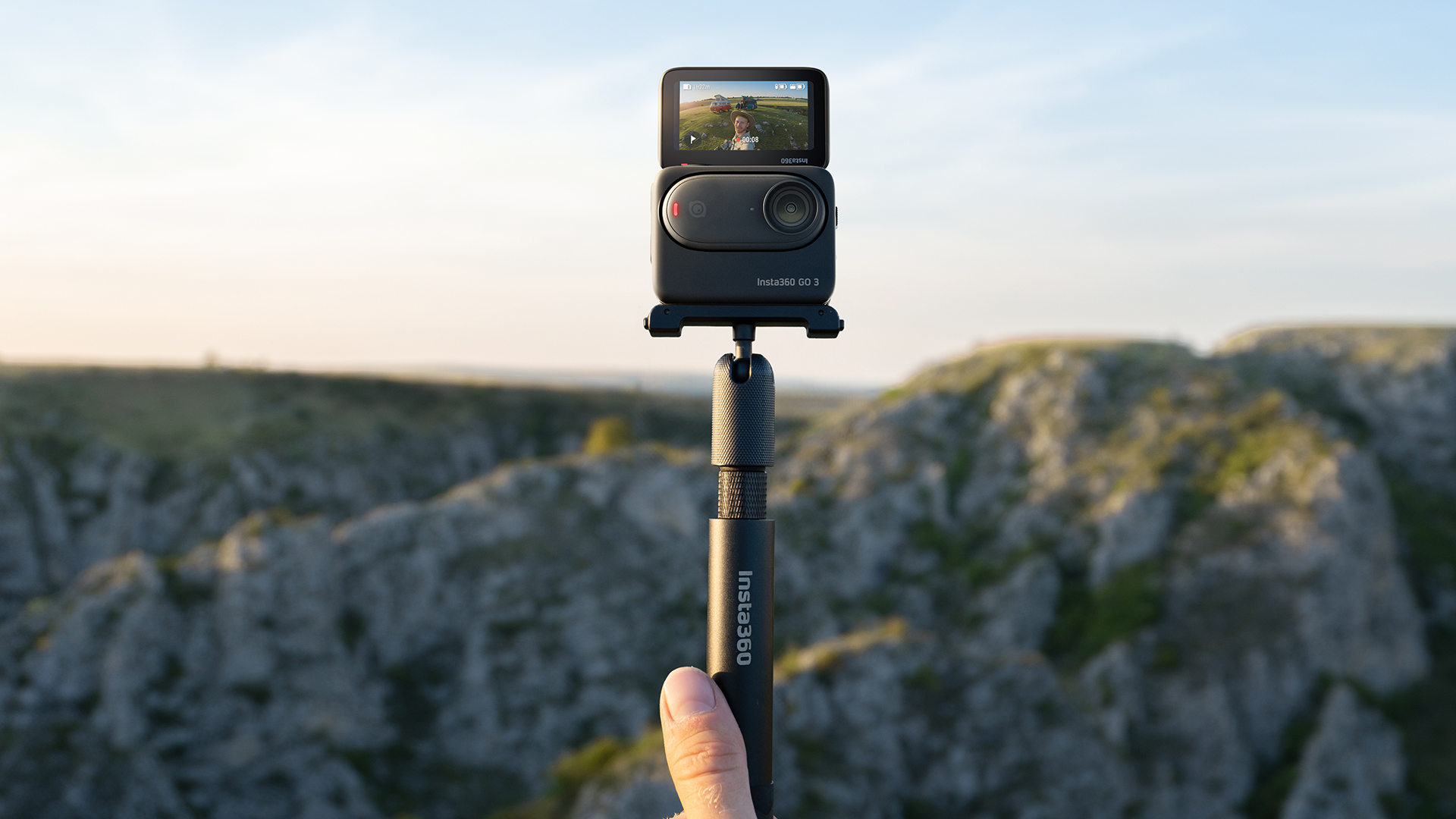 Best action camera 2025: rugged cams for adventurers and vloggers
Best action camera 2025: rugged cams for adventurers and vloggersThe best action cameras from GoPro, DJI, Insta360 and others to capture your adventures
By Matt Kollat
-
 Best earbuds 2025
Best earbuds 2025Small in size but big in sound quality – these are ideal in-ear options
By David Nield
-
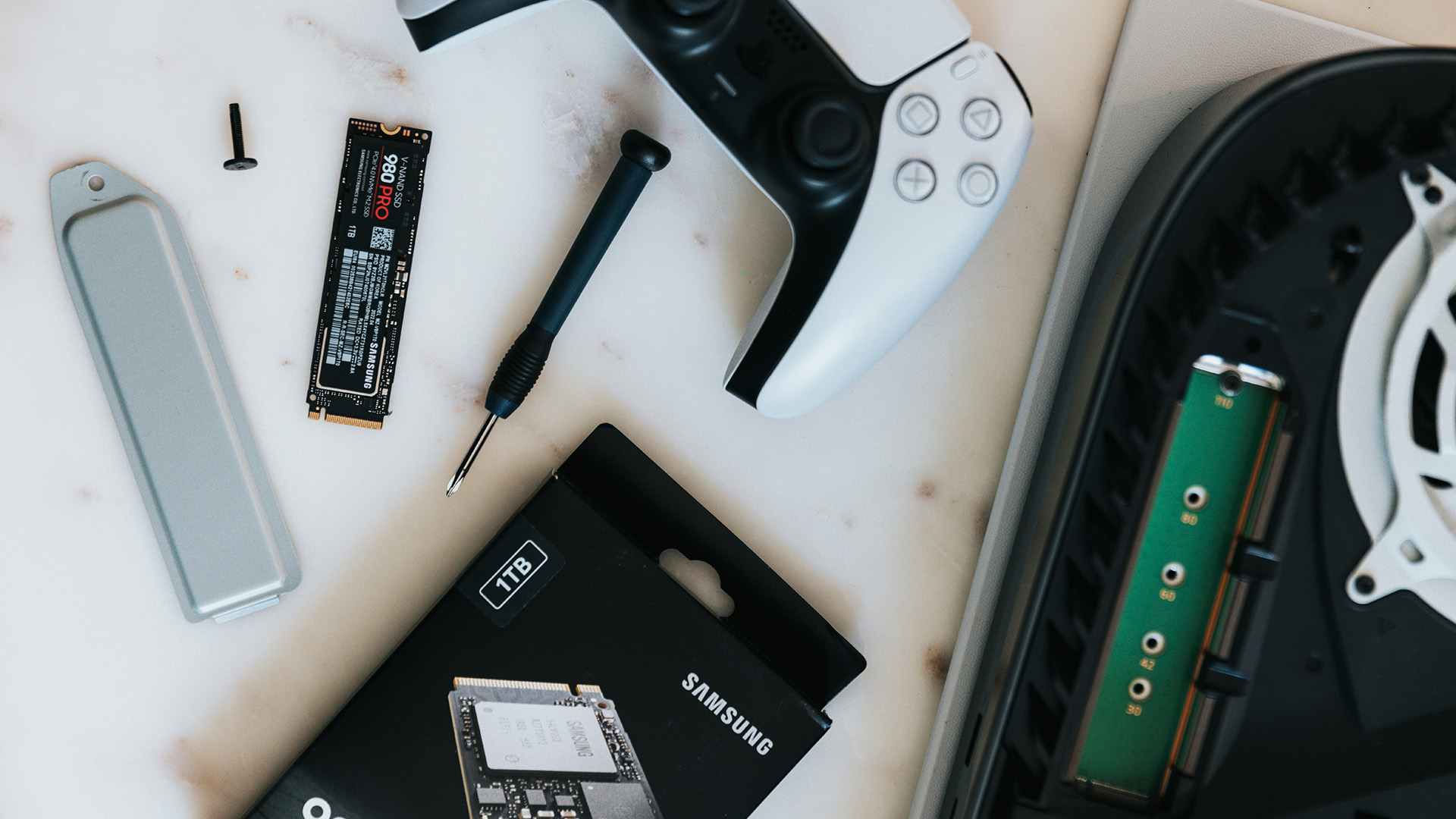 Best PS5 SSD 2025: store 100s more games on your PlayStation 5
Best PS5 SSD 2025: store 100s more games on your PlayStation 5The definitive guide to the best SSDs for PS5 available today
By Rik Henderson
-
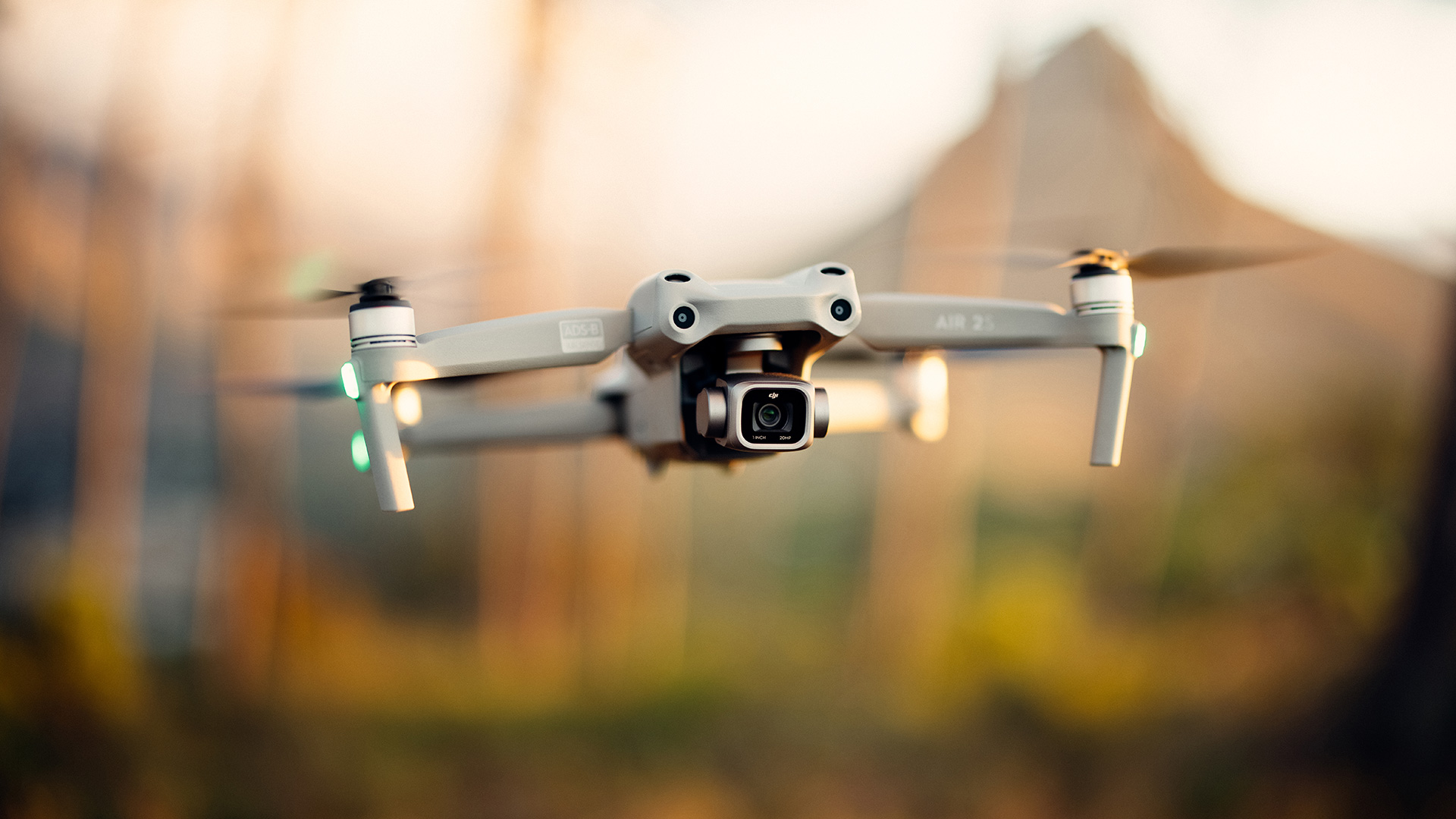 Best drone 2025: transform your perspective
Best drone 2025: transform your perspectiveTake to the skies with the best drones, offering stunning aerial photography, intuitive controls, and cutting-edge features for beginners and pros alike
By Matt Kollat
-
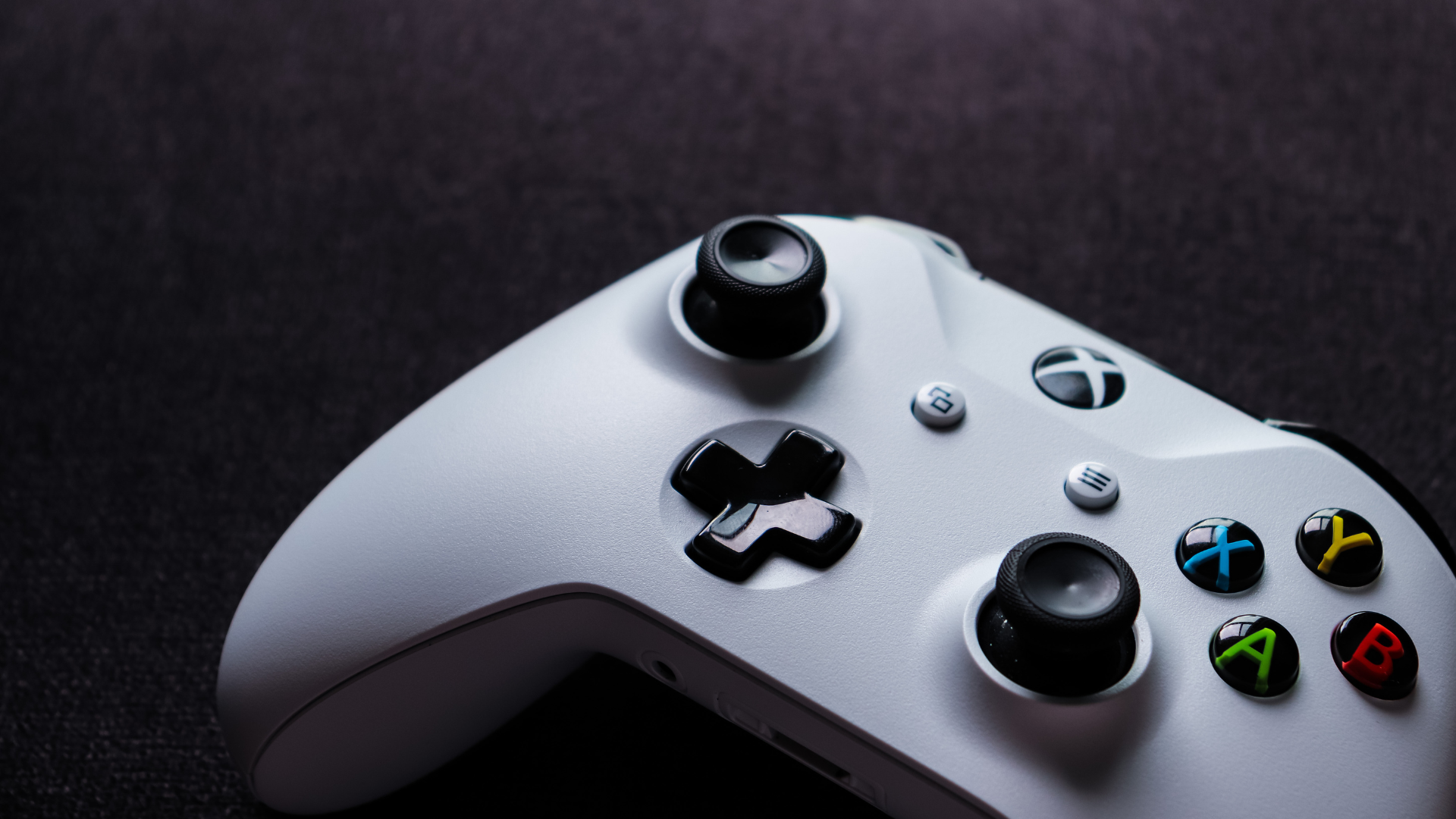 Best TVs for Xbox Series X 2025: amazing panels for Xbox gamers
Best TVs for Xbox Series X 2025: amazing panels for Xbox gamersThe best Xbox Series X TVs deliver next-gen HDMI 2.1 features, plus Dolby Vision & Dolby Atmos gaming
By Louise Blain
-
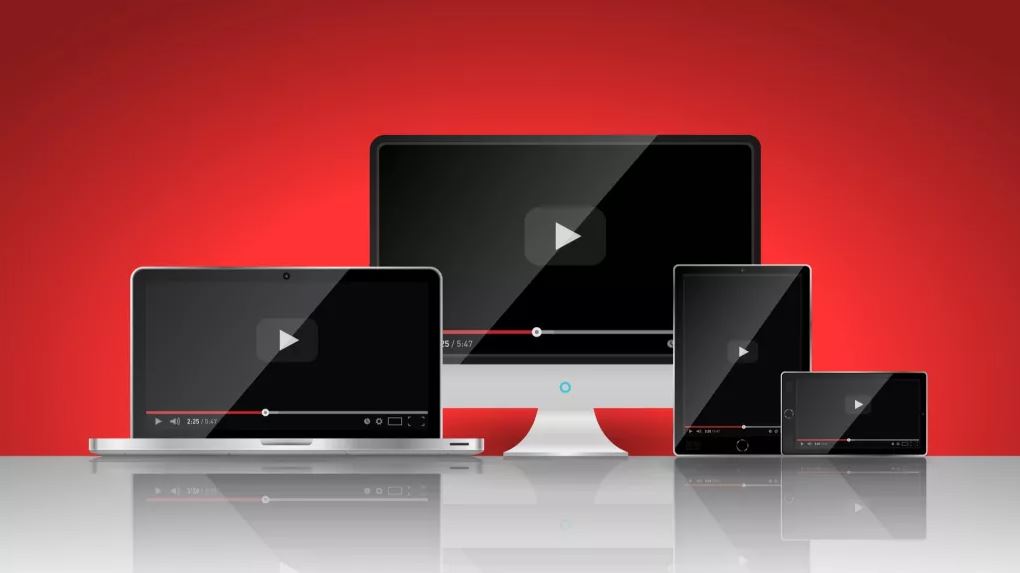 10 best VPN services for the everyday user in 2025
10 best VPN services for the everyday user in 2025Boost your digital privacy and unblock content from around the world with a VPN, and check out my top 10 apps.
By Alice Marshall
-
 5 best free VPN downloads in 2025 to secure your device
5 best free VPN downloads in 2025 to secure your deviceGet your feet wet with a free VPN to help you learn how to stay hidden and safe online
By Alice Marshall
-
 5 best Mac VPNs for your MacBook or iMac 2025
5 best Mac VPNs for your MacBook or iMac 2025Protect your Mac from malware and hackers with the best macOS-compatible VPNs
By Alice Marshall

